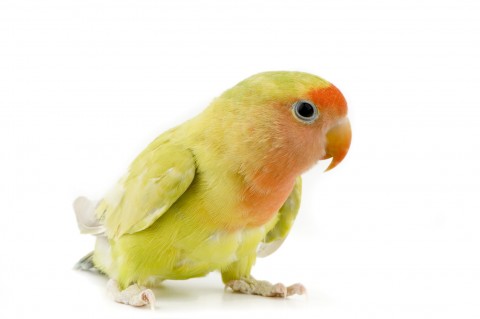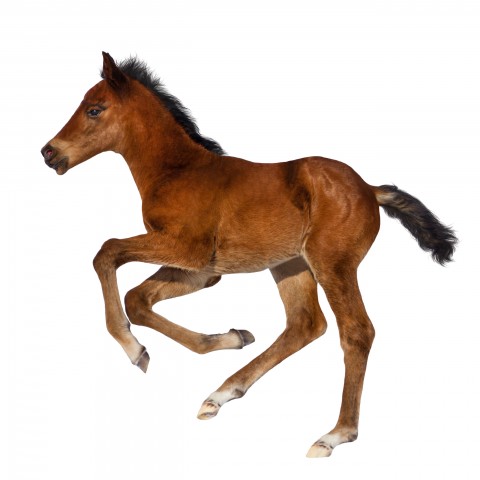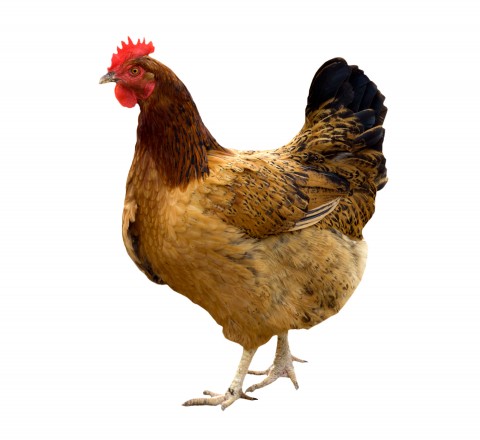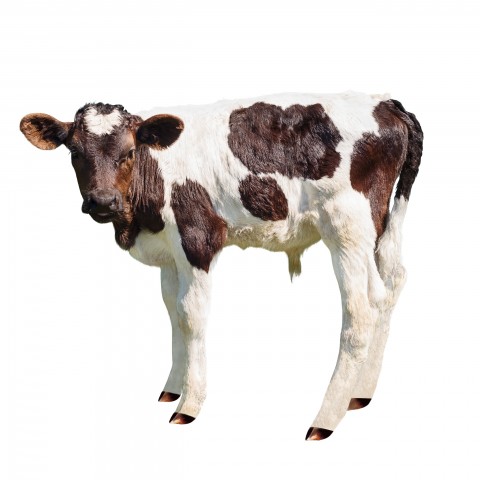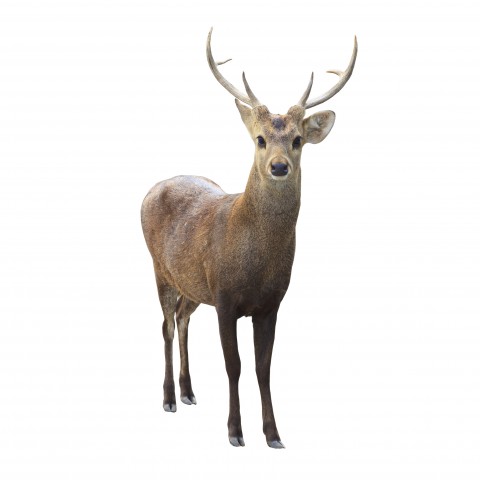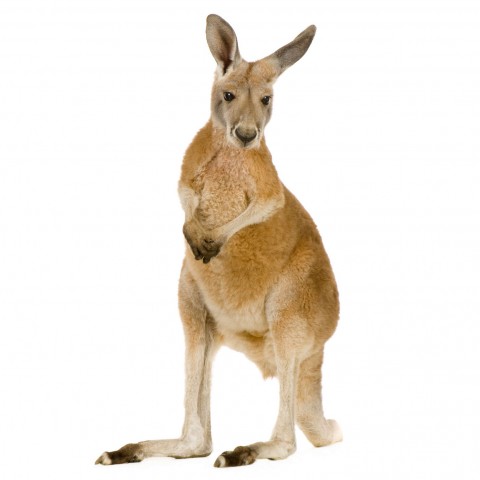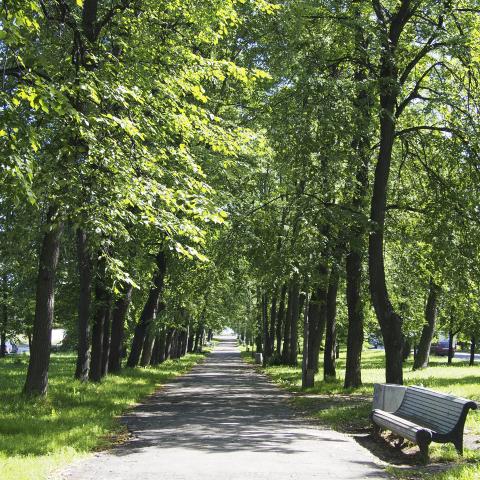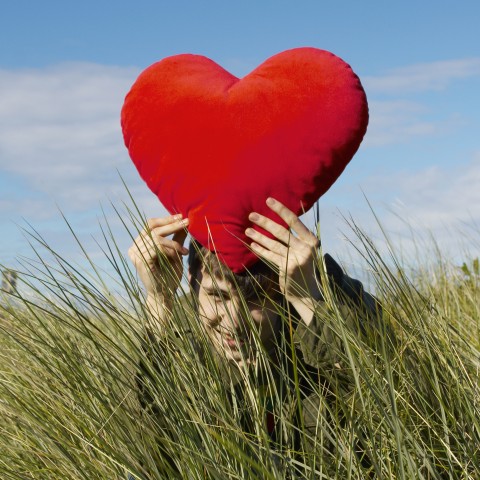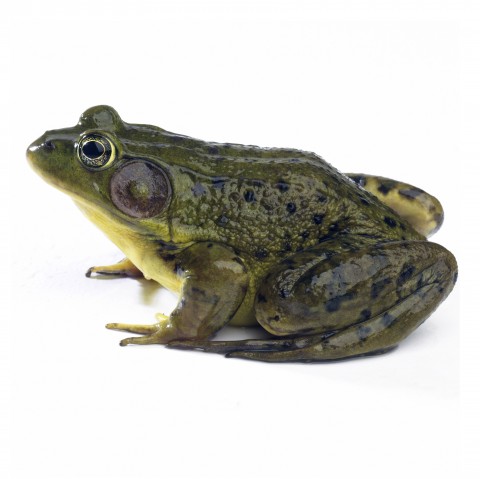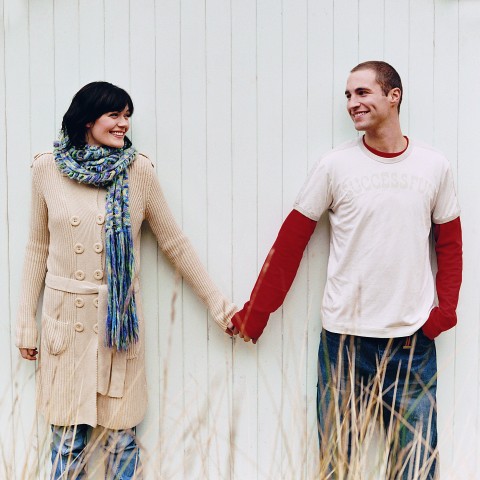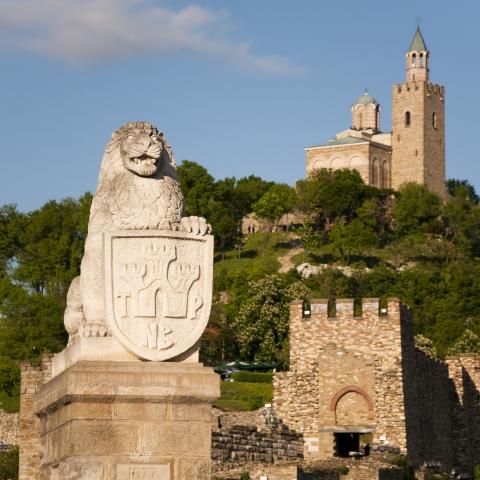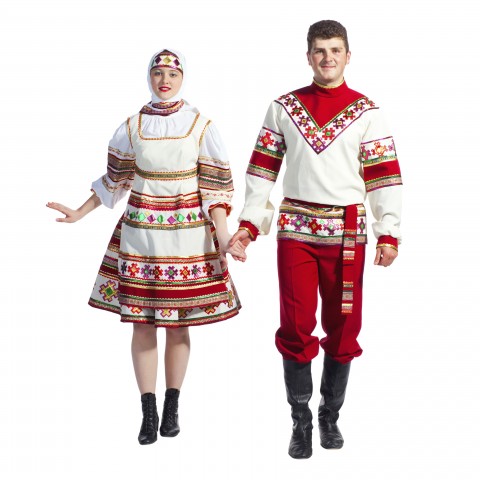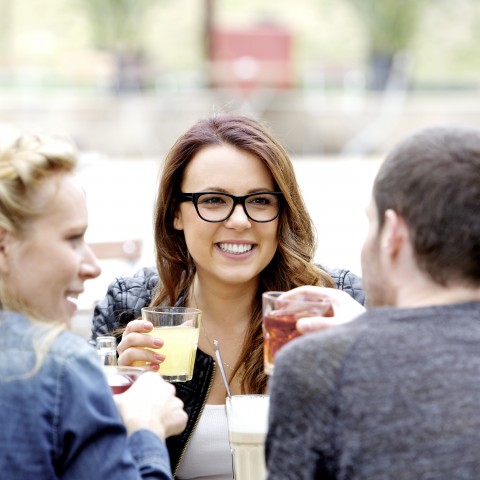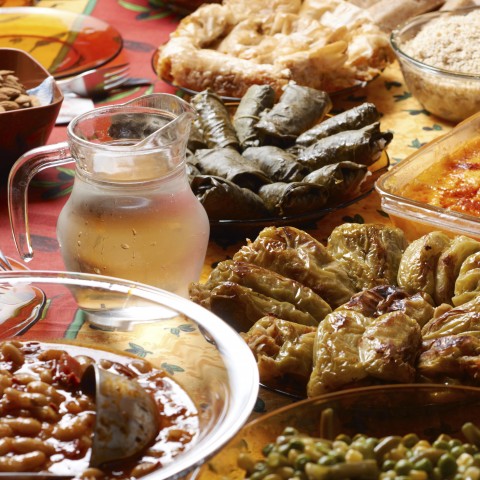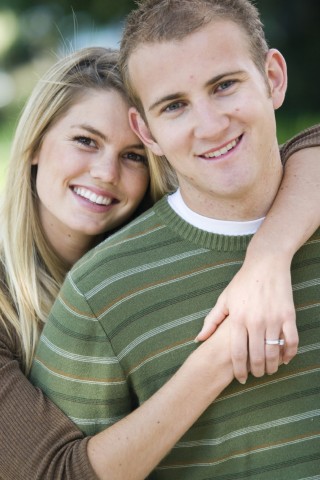
Did you know that the oldest national anthem is considered to be the Dutch Wilhelmus, written between 1568 and 1572? Well, compared to it, the Bulgarian national anthem is rather new. In this detailed review prepared by BulgarianPod101 you will find out when it was written, what is the English meaning of its lyrics as well as some intriguing facts regarding its music.
Most anthems are hymns in style and the Bulgarian one is not an exception. In this guide, you will be able to learn what is the national anthem of Bulgaria and how both the lyrics and melody express the love of Bulgarian people for their own fatherland. Moreover, national anthems are something intimate for every nation. By getting acquainted with the Bulgarian anthem lyrics, you will be able to understand the soul of the Bulgarian people, their feelings, emotions, and also their devotion to their homeland. This will help you learn the Bulgarian language, as learning more about the country’s specific culture is an integral part of the language learning process.
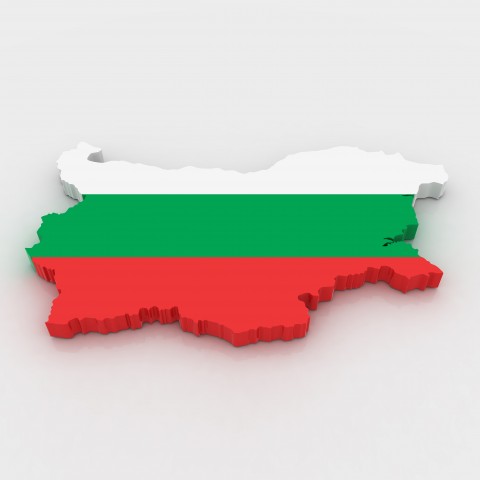
 Table of Contents
Table of Contents
- Bulgarian National Anthem Lyrics in English
- Bulgarian National Anthem History
- List of Occasions When The Bulgarian National Anthem is Sung
- Prohibitions Related to the Bulgarian National Anthem
- How BulgarianPod101 Can Help You Learn Bulgarian
1. Bulgarian National Anthem Lyrics in English
Here are the Bulgarian national anthem’s lyrics, presented with the proper pronunciation and their English translation.
| Bulgarian text | Pronunciation | English translation |
| Горда Стара планина, до ней Дунава синей, слънце Тракия огрява, над Пирина пламеней. (Родино) Мила Родино, ти си земен рай! Твойта хубост, твойта прелест, ах, те нямат край! | Gorda Stara planina, do ney Dunava siney, slantse Trakiya ogryava, nad Pirina plameney. (Rodino) Mila Rodino, ti si zemen ray! Tvoyta hubost, tvoyta prelest, ah, te nyamat kray! | Proud Stara Planina, before it the Danube is blue, the sun shines on Thrace, over Pirin it flames. (Motherland) Dear Motherland, you are an earthly paradise! Your beauty, your charm, oh, they have no end! |
Let’s consider some specific details related to this hymn.
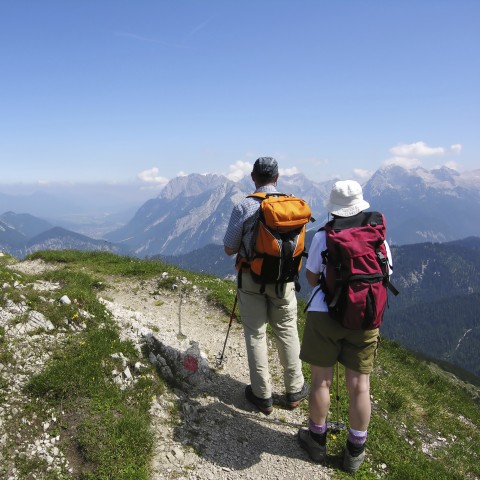
- Стара планина (Stara planina) Stara Planina is the longest and the largest mountain in Bulgaria.
- Дунав (Dunav) The Danube is the second longest river in Europe and separates the territory of Bulgaria and Romania before it flows into the Black Sea.
- Тракия (Trakiya) Thrace is a historical and geographical area in Southeastern Europe, which covers southern Bulgaria.
- Пирин (Pirin) Pirin is a mountain in southwestern Bulgaria, part of the Rila-Rhodope mountain massif, with the highest peak Vihren (2914.3 m).
- ➜ In this lesson, you can learn about Rila Mountain Range as part of the top 10 Bulgarian tourist destinations.
2. Bulgarian National Anthem History
Bulgarian anthem lyrics and music were written in 1885 by Tsvetan Radoslavov, who composed it on the way to the battlefield for the Serbo-Bulgarian War.
But let’s start with some pre-history of the current anthem adoption.
Since the Liberation of Bulgaria from Ottoman rule in 1878 up until 1964, Bulgaria has changed its national anthem many times. During the Third Bulgarian Kingdom, the “Shumi Maritsa” song was chosen as the national anthem. The lyrics were written by Nikola Zhivkov in 1876 with the final edit by the famous Bulgarian writer and poet Ivan Vazov in 1912, while its melody derived from a German folk song. The main theme of this anthem is the fight against the Ottoman rulers and the liberation of the country. It was last performed on January 1, 1947.
Between 1947 and 1950, the march “Our Republic, hello!” became a Bulgarian national anthem. In 1949, three famous Bulgarian poets, Elisaveta Bagryana, Nikola Furnadzhiev, and Mladen Isaev, started to write the verses of a new anthem with the title “Dear Bulgaria.” The main aim was to create an anthem that emphasized the fight for freedom and respect for all those who gave their lives for it. They were able to complete this task in 1950, and the new anthem was officially performed in 1951. However, ten years later, due to the closeness of the lyrics and melody to the Soviet anthem, the poet Georgi Jagarov proposed the idea that the song “Dear Motherland” (Mila Rodino) become the new anthem of Bulgaria.
In 1964, a commission was formed to discuss the approval of Mila Rodino as the Bulgarian national anthem. The composer Petko Staynov opposed the decision claiming that the melody was taken from a Jewish song. After expressing his opinion, Petko Staynov was removed from the commission and Mila Rodino became the national anthem.
Another great Bulgarian composer, Dobri Hristov, also mentioned that the melody is borrowed from a Jewish song. He also specified that in the Bulgarian song memory there are hundreds of melodies that are borrowed from other nations and have become an integral part of the Bulgarian musical heritage.
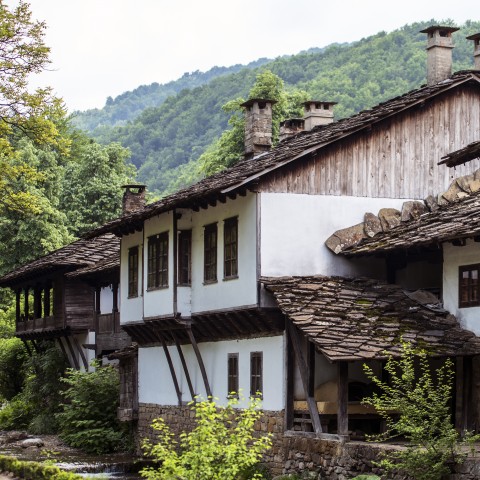
The original lyrics of the song Mila Rodino looked like this:
| Bulgarian text | Pronunciation | English translation |
| 1.Горда Стара планина, до ней север се синей Слънце Витош позлатява, към Цариград се белей Мила Родино, ти си земен рай! Твойта хубост, твойта прелест, ах, те нямат край! Хайде братя българи, към Балкана да вървим. Там се готви бой юнашки, за свобода, правдини. 2.Паднаха борци безчет,за народа наш любим.Майко, дай ни мъжка сила,пътя им да продължим! 3.Дружно братя българи, с нас Москва е в мир и бой! Партия велика води, нашият победен строй. | Gorda Stara planina, do ney sever se siney Slantse Vitosh pozlatyava, kam Tsarigrad se beley Mila Rodino, ti si zemen ray! Tvoyta hubost, tvoyta prelest, ah, te nyamat kray! Hayde bratya balgari, kam Balkana da varvim. Tam se gotvi boy yunashki, za svoboda, pravdini. Padnaha bortsi bezchet, za naroda nash lyubim. Mayko, day ni mazhka sila, patya im da prodalzhim! 3.Druzhno bratya balgari, s nas Moskva e v mir i boy! Partiya velika vodi, nashiyat pobeden stroy. | Proud Stara Planina, Next to it the North is blue, the sun shines on Vitosha, to Constantinople it flames. Dear Motherland, you are an earthly paradise! Your beauty, your charm, oh, they have no end! Come on, Bulgarian brothers, go to the Balkans. A heroic battle is being prepared there, for freedom, for justice. Countless fighters fell for our beloved people. Mother, give us masculine strength, to continue their path! 3. Come together, Bulgarian brothers, Moscow is with us in peace and war! A great party is leading our victorious lines. |
In these lyrics Vitosha Mountain is mentioned along with Constantinople which later were removed. Over the years the anthem’s lyrics were changed multiple times until 1990 when the current version of the anthem was adopted and stayed unchanged until now.
- ➜ You can learn more details about Vitosha mountain located next to the Bulgarian capital in this lesson, prepared by BulgarianPod101.
3. List of Occasions When The Bulgarian National Anthem is Sung
There are specific occasions when the National Anthem is performed. This list will help you learn where you can expect to hear the Bulgarian national anthem.
- ❖ During the celebration of the Bulgarian Liberation Day on March 3.
❖ Оn some Bulgarian national holidays, like The Day of Courage and the Bulgarian Army on May 6 or the New Year Celebration. Bulgarians start each new year with the Bulgarian national anthem instrumental followed by the Danube round dance.
❖ During the celebration of important historical figures like the Hristo Botev Day (and the Fighters for Freedom and Independence of Bulgaria) on June 2, the Vasil Levski Commemoration Day on February 19, etc.
❖ During the flag raising ceremonies of the Republic of Bulgaria.
❖ During the state and official visits as well as diplomatic or military ceremonies.
❖ Other official events of national importance at the initiative of state bodies.
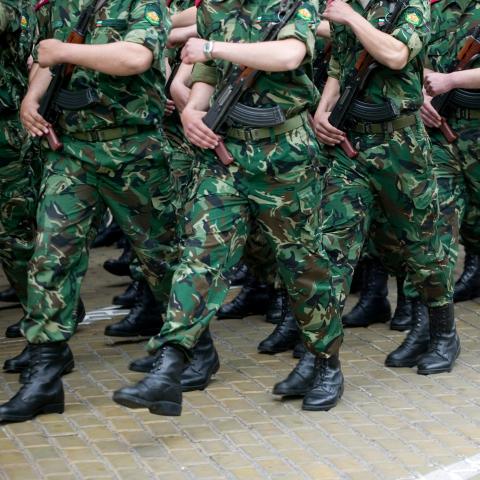
The full version of the anthem “Mila Rodino”, which includes the first verse once and the chorus repeated twice, is performed during all these events. The short version of the national anthem is the verse and chorus performed once.
The short version of the Bulgarian national anthem can be performed on the following occasions: at cultural and sports events, and on occasions such as the opening of the school year.
The anthem of the Republic of Bulgaria can be performed only once a day, at the ceremonies described above.
4. Prohibitions Related to the Bulgarian National Anthem
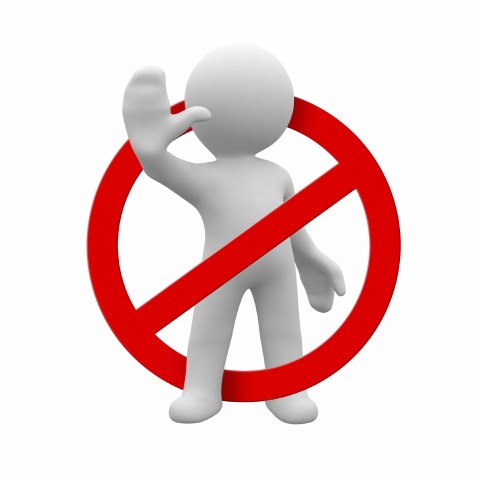
An interesting fact is that there are some prohibitions on the use of the Bulgarian national anthem.
The anthem may not be used in advertising, except for national campaigns undertaken by the state authorities. The anthem may not be used as part of another melody or song. It is prohibited to be performed in remixed versions with lyrics other than legally established text or by means of musical instruments that create a humorous sound, with pauses, interruptions or extensions of the tones being played. It is prohibited to change the original sound of the anthems.
5. How BulgarianPod101 Can Help You Learn Bulgarian
This detailed Bulgarian national anthem review prepared by BulgarianPod101 is created to help you learn more about the most important hymn in the country – its anthem. The process of choosing this Bulgarian anthem says a lot about Bulgarian culture and way of life during the years after the Liberation from the Ottoman Empire in 1878. The more you know about the country, the easier it will be for you to understand the ethnopsychology of its people, as their language includes specific features of their culture.
Bulgarian language is not easy to study on your own and if you need professional guidance for this, you can find it in the MyTeacher section. Choose a professional native Bulgarian teacher who is not only able to teach Bulgarian but also will make the learning process easier by making his or her Bulgarian online lessons funny and easy to remember.
Now that you know the story behind the Bulgarian national anthem, we would be happy to receive your feedback about what impressed you the most about it, so feel free to share your thoughts in the comments below.

Extensive Bulgarian Classroom Phrases Guide

Have you ever heard John Ciardi’s words about the classroom? He says: “The classroom should be an entrance into the world, not an escape from it.” How truthful these words are! So knowing more Bulgarian classroom words and phrases can help you enter into the world of Bulgarian culture.
Why has BulgarianPod101 prepared this extensive guide for you? On one hand, if you live in Bulgaria and attend some Bulgarian language classes, this Bulgarian online guide will help you feel much more confident in a classroom setting. On the other hand, it might be useful for you if you are a foreign language teacher who teaches students in Bulgaria. Moreover, whenever people talk about their studies or education in Bulgarian, you will be able to join the discussion because of the Bulgarian school phrases you have learnt in this guide.
It contains different Bulgarian classroom greetings, teacher’s instructions, phrases that help you ask for clarification, school supplies vocabulary and much more. So let’s imagine we are now in a virtual classroom and learn step by step those useful Bulgarian classroom phrases that will help you start speaking freely on the topic of education.

 Table of Contents
Table of Contents
- Bulgarian Classroom Greetings
- Understand Instructions from Teachers
- Ask for Clarifications from Teachers and Classmates
- Explain Absence and Tardiness
- Talk about Favorite Subjects
- Check for School Supplies
- How BulgarianPod101 Can Help You Learn Bulgarian
1. Bulgarian Classroom Greetings
| Bulgarian classroom greetings | Pronunciation | English translation |
| Здравейте, ученици. | Zdraveyte, uchenitsi. | Hello, students. |
| Здравейте, госпожо Иванова/господин Иванов. | Zdraveyte, gospozho Ivanova/gospodin Ivanov. | Hello, Mrs. Ivanova/Mr. Ivanov. |
| It is common for the teacher to greet the class entering into the classroom the following way and the class to respond to her/him. In previous years the teacher profession was very reputable and all the students had to stand up to greet the teacher when he/she entered the classroom. Currently, this gesture of respect is no longer observed. | ||
| Довиждане, ученици, до утре! | Dovizhdane, uchenitsi, do utre! | Goodbye, students, see you tomorrow! |
| Довиждане, госпожо Иванова/господин Иванов. | Dovizhdane, gospozho Ivanova/gospodin Ivanov. | Goodbye, Mrs. Ivanova/Mr. Ivanov. |
| These are very common phrases for when the lesson is over and the teacher leaves the classroom. | ||
Note that it is common to address a teacher with “госпожо” and “господине” followed by their family name. Even if you have to address the principal of the school directly, the preferred way is to use their family name. For example:
Г-н Димитров, може ли да ми отделите една минута?
G-n Dimitrov, mozhe li da mi otdelite edna minuta?
Mr. Dimitrov, can I take a minute of your time?
Only when writing an official letter to the school principal, his/her title should be mentioned.
An example of an application letter to the school principal
This example might help you write your own application to your school principal. You can only change the request and the reasons for it according to your own situation. We highlighted all those parts that can be modified to customize the application. All other parts can remain as they are.

| До директора на училище “Йордан Йовков”, г-н Антон Димитров МОЛБА от Андрей Василев, ученик в 10 клас Уважаеми г-н Директор, Моля да ми бъде разрешено да отсъствам за два дни от училище поради участие в Олимпиада по математика, която ще се състои на 2 и 3 март 2022 г. в Гърция. Надявам се, че молбата ми ще бъде удовлетворена. гр. София С уважение, 18.02.2022 г. Андрей Василев |
| Do direktora na uchilishte “Yordan Yovkov”, g-n Anton Dimitrov MOLBA ot Andrey Vasilev, uchenik v 10 klas Uvazhaemi g-n Direktor, Molya da mi bade razresheno da otsastvam za dva dni ot uchilishte poradi uchastie v Olimpiada po matematika, koyato shte se sastoi na 2 i 3 mart 2022 godina v Gartsiya. Nadyavam se, che molbata mi shte bade udovletvorena. grad Sofiya S uvazhenie, 18.02.2022 Andrey Vasilev |
| To the principal of “Yordan Yovkov” School, Mr. Anton Dimitrov APPLICATION by Andrey Vassilev, a student in 10th grade Dear Mr. Principal, I ask to be allowed to be absent from school for two days due to participation in the Mathematics Olympiad, which will take place on March 2 and 3, 2022 in Greece. I hope that my request will be approved. Sofia Sincerely, February 18, 2022 Andrei Vasilev |
You might notice some differences in this Bulgarian application compared to the English application to the School Principal.
And what if the Principal is a woman? In that case, you have to change the phrase:
“Уважаеми г-н Директор”
(Uvazhaemi gospodi Direktor)
Dear Mr. Principal
with
“Уважаема г-жо Директор”
(Uvazhaema gospozho Direktor).
Dear Mrs. Principal
And instead of writing
г-н Антон Димитров
(gospodin Anton Dimitrov)
Mr. Anton Dimitrov
at the very beginning of the application, you have to write г-жо followed by her name.
For example: г-жа Антонина Димитрова
(gospozha Antonina Dimitrova)
Mrs. Antonina Dimitrova
* What other good reasons can you point in your application to the principal as an excuse for being absent from lessons? Here are a few more suggestions:
- поради предстоящо пътуване в чужбина
(poradi predstoyashto patuvane v chuzhbina)
due to an upcoming trip abroad
- поради предстоящо лечение
(poradi predstoyashto lechenie)
due to a forthcoming medical treatment
- по лични причини
(po lichni prichini)
for personal reasons
2. Understand Instructions from Teachers
It is very important to understand the teacher’s instructions in class or you might miss something really essential. Here is a list of some common phrases that teachers use in the classroom.
| Bulgarian classroom instructions | Pronunciation | English translation |
| Моля, отворете учебника на страница Х. | Molya, otvorete uchebnika na stranitsa Х. | Please open your textbook on page X. |
| Here is an example: Моля, отворете учебника на страница двадесет и първа. (Molya, otvorete uchebnika na stranitsa dvadeset i parva) Please open the textbook on page twenty-one.
| ||
| Тишина, моля. / Запазете тишина. | Tishina, molya. / Zapazete tishina. | Silence, please. / Keep silent. |
| Слушайте внимателно! | Slushayte vnimatelno! | Listen carefully! |
| Имате ли въпроси? | Imate li vaprosi? | Any questions? |
| Отворете тетрадките и пишете. | Otvorete tetradkite i pishete | Open the notebooks and write down. |
 | ||
| За домашно направете упражнение Х на страница Х. | Za domashno napravete uprazhnenie Х na stranitsa Х. | For homework, do exercise X on page X. |
| For example: За домашно направете упражнение 2 на страница 10. Za domashno napravete uprazhnenie dve na stranitsa deseta. For homework, do exercise 2 on page 10. | ||
| Подгответе се за изпит. | Podgotvete se za izpit | Prepare for the exam. |
3. Ask for Clarifications from Teachers and Classmates
It might happen that you do not clearly understand the teacher’s instruction or question to you. In that case you might ask the teacher or your classmates for clarification. How to do that? Here are a few suggestions:
* Let’s start with asking for clarifications from your teacher.
| Bulgarian classroom questions | Pronunciation | English translation |
| Съжалявам, не разбрах въпроса. | Sazhalyavam, ne razbrah vaprosa. | Sorry, I didn’t understand the question. |
| Бихте ли повторили? | Bihte li povtorili? | Would you repeat that? |
| Може ли да дадете пример? | Mozhe li da dadete primer? | Can you give an example? |
| Имам въпрос. | Imam vapros. | I have a question. |
| Мога ли да задам един въпрос? | Moga li da zadam edin vapros? | Can I ask a question? |
* Let’s now consider the following clarifications from your classmates.
| Bulgarian classroom questions | Pronunciation | English translation |
| Какво точно каза учителят? | Kakvo tochno kaza uchitelyat? | What exactly did the teacher say? |
| Можеш ли да ми обясниш тази задача? | Mozhesh li da mi obyasnish tazi zadacha? | Can you explain this task to me? |
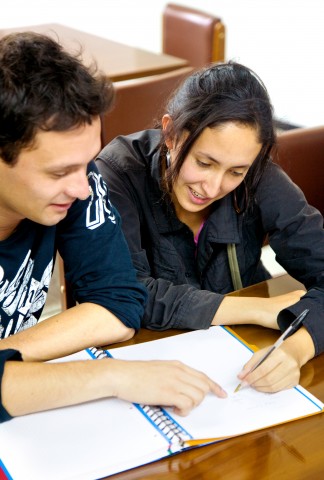
4. Explain Absence and Tardiness
If you are not able to attend the class for some reason or you were late and you are trying to explain the reason for this, you could eventually use some of the suggestions below that are quite commonly used by Bulgarian students in a similar situation.
Let’s start with the main phrase:
Съжалявам, че закъснях. (Sazhalyavam, che zakasnyah) I am sorry for being late.
And then you could add any of the reasons below:
| Bulgarian classroom excuses | Pronunciation | English translation |
| Автобусът ми закъсня. | Avtobusat mi zakasnya. | My bus was late. |
| Не си навих часовника и се успах. | Ne si navih chasovnika i se uspah. | I didn’t set my alarm clock and slept through. |
| Бях си загубил ключовете. | Byah si zagubil klyuchovete. | I had lost my keys. |
| Забравих си раницата вкъщи и се наложи да се връщам. | Zabravih si ranitsata vkashti i se nalozhi da se vrashtam. | I forgot my backpack at home and had to go back. |

What could you tell as an excuse if you don’t have the required homework? Here are a few suggestions:
Let’s start with the main phrase:
Съжалявам, но нямам домашно. (Sazhalyavam, no nyamam domashno) I am sorry but I don’t have homework.
And then you could add any of the reasons below:
| Bulgarian classroom excuses | Pronunciation | English translation |
| Вчера имах рожден ден и не успях да го направя. | Vchera imah rozhden den i ne uspyah da go napravya. | I had a birthday yesterday and I couldn’t do it. |
| Кучето ми изяде листа с домашното. | Kucheto mi izyade lista s domashnoto. | My dog ate my homework. |
| Малката ми сестричка го надраска и скъса листа. | Malkata mi sestrichka go nadraska i skasa lista. | My little sister scratched and tore it. |
| Разлях каната с водата върху него. | Razlyah kanata s vodata varhu nego. | I spilled the jug of water on it. |
What if you have to be absent from school? You might use one of the following suggestions:
Let’s start with the main phrase:
Извинете, но днес няма да мога да дойда на училище. (Izvinete, no dnes nyama da moga da doyda na uchilishte) I’m sorry, but I won’t be able to come to school today.
And then you could add any of the reasons below:
| Bulgarian classroom excuses | Pronunciation | English translation |
| Разболях се и ми е много лошо. | Razbolyah se i mi e mnogo losho. | I got sick and I feel very bad. |
| Не се чувствам добре. | Ne se chuvstvam dobre. | I’m not feeling well. |
| Имам ужасно главоболие. | Imam uzhasno glavobolie. | I have a horrible headache. |
| Налага се да отида до болницата. | Nalaga se da otida do bolnitsata. | I have to go to the hospital. |
- ➜ In the following list you can see some other answers in Bulgarian to the question: How are you?
5. Talk about Favorite Subjects
Let’s take a look at Bulgarian school subject names shown in the following list. Below we present two sentence patterns that use these subject names.
| Bulgarian classroom subjects | Pronunciation | English translation |
| математика | matematika | Mathematics |
| биология | biologiya | Biology |
| химия | himiya | Chemistry |
| физика | fizika | Physics |
| граматика | gramatika | Grammar |
| литература | literatura | Literature |
| история | istoriya | History |
| география | geografiya | Geography |
| икономика | ikonomika | Economy |
| физическо възпитание | fizichesko vazpitanie | Physical education |
| музика | muzika | Music |
| рисуване | risuvane | Art |
| информатика | informatika | Computer science |
- ➜ You can learn some more school subject related words and phrases in the following page.
Pattern 1
This Bulgarian sentence pattern will help you tell others what your favorite school subject is:
Моят любим предмет е _______.
(Moyat lyubim predmet e _______)
My favorite subject is _______.
Here are two examples:
- Моят любим предмет е математика.
(Moyat lyubim predmet e matematika)
My favorite subject is Math.
- Моят любим предмет е рисуване.
(Moyat lyubim predmet e risuvane)
My favorite subject is art.
Pattern 2
This pattern will help you say which school subject you find the most difficult to study:
_____________ изобщо не ми върви.
(_____________ izobshto ne mi varvi)
I’m not good at _______ at all.
Here are two examples:
- Историята изобщо не ми върви.
(Istoriyata izobshto ne mi varvi)
I’m not good at History at all.
- Рисуването изобщо не ми върви.
(Risuvaneto izobshto ne mi varvi)
I’m not good at Art at all.

6. Check for School Supplies
Now, let’s take a look at Bulgarian names for school supplies you need at school daily. Here is a list of them followed by two patterns on how to use them in sentences.
| Bulgarian classroom subjects | Pronunciation | English translation |
| учебник | uchebnik | textbook |
| тетрадка | tetradka | notebook |
| химикал | himikal | pen |
| молив | moliv | pencil |
| линия | liniya | ruler |
| гума | guma | eraser |
| чин | chin | desk |
| черна дъска | cherna daska | blackboard |
| калкулатор | kalkulator | calculator |
| раница | ranitsa | backpack |
| тебешир | tebeshir | chalk |
| гъба | gaba | sponge |
| пергел | pergel | ark compass |
- ➜ BulgarianPod101 offers a wide range of Bulgarian lessons. Would you like to learn office supplies in Bulgarian? Then this lesson prepared by BulgarianPod101 is just for you.
Pattern 1
This Bulgarian question pattern helps you ask others to borrow a specific school supply you don’t have at the moment:
Можеш ли да ми услужиш с _______?
(Mozhesh li da mi usluzhish s _______)
Can you lend me your _______?
Here are two examples:
- Можеш ли да ми услужиш с гума?
(Mozhesh li da mi usluzhish s guma)
Can you lend me your eraser?
- Можеш ли да ми услужиш с един химикал?
(Mozhesh li da mi usluzhish s edin himikal)
Can you lend me a pen?
Pattern 2
This pattern will help you ask others to give you any of their school supplies for you to take a closer look at it:
Мога ли да видя _____________ ?
(Moga li da vidya _____________)
May I see _______ ?
Here are two examples:
- Мога ли да видя твоята раница?
(Moga li da vidya tvoyata ranitsa)
May I see your backpack?
- Мога ли да видя твоя учебник?
(Moga li da vidya tvoya uchebnik)
May I see your textbook?
7. How BulgarianPod101 Can Help You Learn Bulgarian
This extensive guide prepared by BulgarianPod101 contains all the basic Bulgarian classroom phrases in English that you need to know in order to feel more confident in a school environment. Even if you cannot understand the teacher’s instructions, you now know how to ask for clarification.
Since studying a foreign language is a long process that requires a lot of dedication, you might need additional motivation to keep on studying. A good Bulgarian teacher from the MyTeacher section is able to teach Bulgarian and offer useful Bulgarian language courses with expertise. He or she could be a perfect driving factor that will help you advance further and not surrender halfway into the process
We prepared this guide with basic Bulgarian classroom phrases to help you learn Bulgarian language more conveniently and easy. We would be happy to see your feedback so do not hesitate to share your thoughts with us in the comments below.

Bulgarian Restaurant Phrases Guide: How to Order Food

A popular François de la Rochefoucauld quote states: “To eat is a necessity, but to eat intelligently is an art.” Well, although this guide is not about the art of preparing food intelligently, it will get you acquainted with the most common restaurant phrases in Bulgarian that will help you order your food and eat “intelligently” while you are in Bulgaria.
BulgarianPod101 will help you gain more confidence when you have to book a table in a Bulgarian restaurant, ask for a menu, order foods and drinks or ask for the bill by helping you learn a lot of travel phrases. It provides you with some useful dialogues as examples that will help you see how to use the basic Bulgarian restaurant phrases in a context.
Thus, apart from tasting the best Bulgarian national dishes, your time eating out in Bulgaria can become a practical exercise that will help you further develop comprehensive Bulgarian speaking skills. This ultimate guide that includes useful Bulgarian restaurant conversation phrases and some great Bulgarian learning tips will take you through all the stages – from entering a chosen restaurant to saying goodbye.
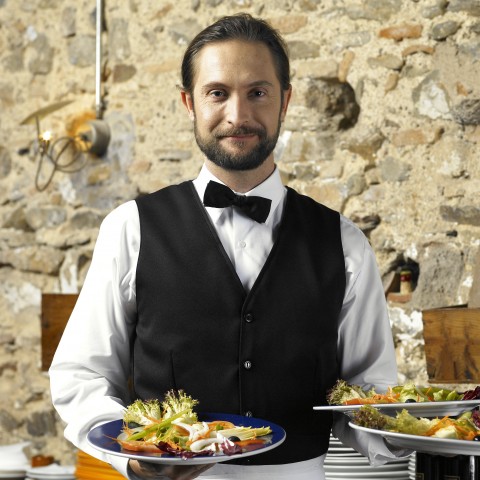
 Table of Contents
Table of Contents
- How to book a table in a restaurant?
- What to say when you enter a restaurant?
- It’s time to order
- It’s time to pay the bill
- For people with special nutritional considerations
- What types of restaurants can you find in Bulgaria?
- How BulgarianPod101 Can Help You Learn Bulgarian?
1. How to book a table in a restaurant?
Let’s start first with the right way to book a table in a Bulgarian restaurant. We will provide you with a list of Bulgarian restaurant phrases for booking a table and then a dialogue example that shows exactly how to use these phrases during a real phone conversation.
A- List of Bulgarian Restaurant Phrases
Keep in mind that many of these suggested phrases are models. We provide different choices for each model for you to choose from based on your specific situation.
| Bulgarian Restaurant Phrases | Pronunciation | English translation |
| Маса за … (двама, трима, четирима), моля! | Masa za … (dvama, trima, chetirima), molya! | Table for … (two, three, four), please! |
| Мога ли да резервирам маса за …. (понеделник/вторник/сряда/ четвъртък/петък/събота/неделя) вечерта? | Moga li da rezerviram masa za …. (ponedelnik/vtornik/sryada/ chetvartak/petak/sabota/nedelya) vecherta? | Can I book a table for …. (Monday / Tuesday / Wednesday / Thursday / Friday / Saturday / Sunday) evening? |
| Имате ли свободна маса… (в залата за непушачи/на терасата/до прозореца)? | Imate li svobodna masa… (v zalata za nepushachi/na terasata/do prozoretsa)? | Do you have a free table… (in the non-smoking area/on the balcony/by the window)? |
| Имате ли свободна маса за… (6 / 7/ 8/ 9) часа вечерта днес? | Imate li svobodna masa za … (shest/sedem/osem/devet) chasa vecherta dnes? | Do you have a free table for (6 / 7/ 8/ 9) pm tonight? |
| Искам да резервирам маса за вторник от 5 часа вечерта. | Iskam da rezerviram masa za vtornik ot 5 chasa vecherta. | I want to book a table for Tuesday at 5 p.m. |
| Необходимо ли е предварително заплащане за резервацията? | Neobhodimo li e predvaritelno zaplashtane za rezervatsiyata? | Is paying in advance required for the reservation? |
| Моля, потвърдете резервацията ми за маса в ресторанта. | Molya, potvardete rezervatsiyata mi za masa v restoranta. | Please confirm my table reservation at the restaurant. |
- ➜ You can take a look at the guide on telling time in Bulgarian if you are not sure how to say the exact time in Bulgarian for which you need to book a table in a restaurant.
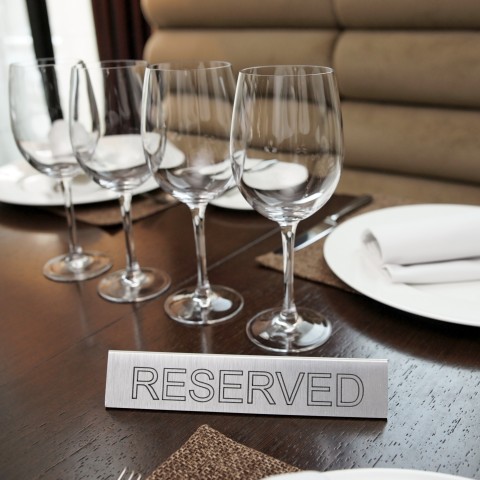
B- Dialogue Example
- Здравейте, мога ли да запазя маса за двама?
Zdraveiyte, moga li da zapazya masa za dvama?
Hello, can I reserve a table for two?
- Разбира се, за кога ви трябва?
Razbira se, za koga vi tryabva?
Of course, when do you need it?
- За вторник от 7 часа вечерта.
Za vtornik ot sedem chasa vecherta.
On Tuesday at 7 p.m.
- Къде предпочитате да е разположена – вътре или на терасата?
Kade predpochitate da e razpolozhena – vatre ili na terasata?
Where would you prefer it to be – indoors or on the balcony?
- Предпочитам вътрешна маса, до прозореца!
Predpochitam vatreshna masa, do prozoretsa!
I prefer an indoor table by the window!
- Масата Ви е резервирана!
Masata Vi e rezervirana!
Your table is booked!
- Много благодаря!
Mnogo blagodarya!
Thank you very much!
2. What to say when you enter a restaurant?
Let’s assume that you have booked your table in a restaurant and you enter the chosen Bulgarian restaurant at the appointed time. What can you say in that case?
A- List of Bulgarian Restaurant Phrases
| Bulgarian Restaurant Phrases | Pronunciation | English translation |
| Имам резервирана маса за 7 часа. | Imam rezervirana masa za sedem chasa! | I booked a table for 7 pm. |
| Казвам се Джон Смит. | Kazvam se Dzhon Smit. | My name is John Smith. |
| Благодаря! | Blagodarya | Thank you! |
Now let’s see how these phrases are used in a conversation.
B- Dialogue Example
- Здравейте, имам резервирана маса за 7 часа.
Zdraveiyte, Imam rezervirana masa za sedem chasa.
Hello, I booked a table for 7 pm.
- Здравейте, Вашето име, моля?
Zdraveiyte, Vasheto ime, molya?
Hello, your name, please?
- Джон Смит.
Dzhon Smit.
John Smith.
- Г-н Смит, Вашата маса е ето там. Заповядайте!
Gospodin Smit, Vashata masa e eto tam. Zapovyadayte!
Mr. Smith, your table is over there. Come on in!
- Благодаря!
Blagodarya!
Thanks!

- ➜ This lesson prepared by BulgarianPod101 will help you answer the first question you are asked at a restaurant.
3. It’s time to order
When you have taken a seat at your booked table, it is time to order. How to do that the correct way? Let’s start with the very first phrases.
A- How to start?
| Bulgarian Restaurant Phrases | Pronunciation | English translation |
| Може ли менюто, ако обичате? | Mozhe li menyuto, ako obichate? | Can I have the menu, please? |
| Мога ли да получа менюто? | Moga li da polucha menyuto? | Can I have the menu? |
| Менюто, ако обичате! | Menyuto, ako obichate! | The menu, please! |
Now let’s see how these phrases are used in a conversation.
B- Dialogue Example
- Може ли менюто, ако обичате?
Mozhe li menyuto, ako obichate?
Can I have the menu, please?
- Разбира се! Ето, заповядайте! След малко ще се върна за поръчката.
Razbira se! Eto, zapovyadayte! Sled malko shte se varna za porachkata.
Of course! Here you are! I’ll be back for the order in a moment.
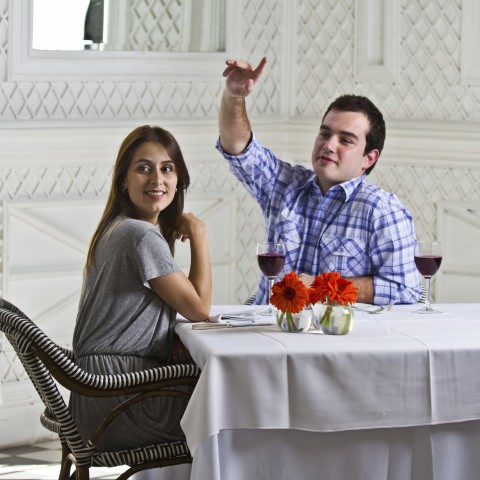
- ➜ You can find even more useful Bulgarian phrases on how to place an order in a restaurant in this lesson.
C- How to order drinks?
Let’s start with a list of drinks in Bulgarian that you can use when you order drinks:
| Bulgarian Restaurant Phrases | Pronunciation | English translation |
| бира | bira | beer |
| вино | vino | wine |
| безалкохолна напитка | bezalkoholna napitka | soft-drink |
| минерална вода | mineralna voda | mineral water |
| сок | sok | juice |
| чай | chay | tea |
| уиски | uiski | whiskey |
| айрян | ayryan | ayran |
- ➜ Learn about Bulgarian beverages in the following lesson.
D- Dialogue Example
- Желаете ли нещо за пиене?
Zhelaete li neshto za piene?
Would you like something to drink?
- Да, за мен портокалов сок, ако обичате, а за жена ми – един айрян.
Da, za men portokalov sok, ako obichate, a za zhena mi – edin ayryan.
Yes, for me, orange juice, please, and for my wife – ayran.
E- How to order food?
Here is a list of basic Bulgarian restaurant words and phrases that you can use to order food in a restaurant.
| Bulgarian Restaurant Phrases | Pronunciation | English translation |
| специалитетът на заведението | spetsialitetat na zavedenieto | the specialty of the restaurant |
| първо | parvo | first course |
| второ | vtoro | second course |
| десерт | desert | dessert |
| супа | supa | soup |
| искам да поръчам | iskam da poracham | I’d like to order |

- ➜ You are not sure how to order your favorite Bulgarian dish? Then, take a look at this lesson prepared by BulgarianPod101.
F- Dialogue Example
- Избрахте ли си нещо за ядене?
Izbrahte li si neshto za yadene?
Did you choose something to eat?
- Да, за първо супа топчета за двама, ако обичате.
Da, za parvo supa topcheta za dvama, ako obichate.
Yes, for the first course a meatball soup for two, please.
- Добре, прието. За второ?
Dobre, prieto. Za vtoro?
Okay, I am writing it down. For the second course?
- Може ли да ми препоръчате нещо?
Mozhe li da mi preporachate neshto?
Can you recommend something to me?
- Мога да Ви препоръчам специалитета на заведението – гювече на фурна.
Moga da Vi preporacham spetsialiteta na zavedenieto – gyuveche na furna.
I can recommend the specialty of the restaurant – casserole in the oven.
- Чудесно, нека за второ бъде гювече на фурна за двама.
Chudesno, neka za vtoro bade gyuveche na furna za dvama.
Great, let the second course be a casserole in the oven for two.
- Искате ли нещо за десерт?
Iskate li neshto za desert?
Would you like something for dessert?
- Да, две парчета бисквитена торта.
Da, dve parcheta biskvitena torta.
Yes, two pieces of biscuit cake.
- Желаете ли още нещо?
Zhelaete li oshte neshto?
Would you like something else?
- Не, това е всичко. Благодаря.
Ne, tova e vsichko. Blagodarya.
No, that’s all. Thanks.
- И аз благодаря. Поръчката Ви е приета.
I az blagodarya. Porachkata Vi e prieta.
Thank you, too. Your order has been placed.
4. It’s time to pay the bill
Here is a list of useful Bulgarian restaurant phrases that you can use to pay your bill in a restaurant.
A- List of Bulgarian Restaurant Phrases
| Bulgarian Restaurant Phrases | Pronunciation | English translation |
| Сметката, моля. | Smetkata, molya. | The bill, please. |
| Приемате ли плащане с карта? | Priemate li plashtane s karta? | Do you accept paying by card? |
| Предпочитам да платя в брой. | Predpochitam da platya v broy. | I prefer to pay in cash. |
| Можем ли да платим отделно? | Mozhem li da platim otdelno? | Can we pay separately? |
| Запазете рестото. | Zapazete restoto. | Keep the change. |
B- Dialogue Example
- Сметката, моля.
Smetkata, molya.
The bill, please.
- Заповядайте. Как предпочитате да платите – с карта или в брой?
Zapovyadayte. Kak predpochitate da platite – s karta ili v broy?
Here you are. How do you prefer to pay – by card or in cash?
- В брой. Запазете рестото.
V broy. Zapazete restoto.
In cash. Keep the change.
- Благодаря. Приятен ден!
Blagodarya. Priyaten den!
Thanks. Have a nice day!
- И аз благодаря за обслужването. Лека работа!
I az blagodarya za obsluzhvaneto. Leka rabota!
Thank you, too, for your service. Have a nice shift!
5. For people with special nutritional considerations
Some people might have some health conditions like allergies or specific food intolerance that require special nutritional considerations. Here are some useful phrases that will help you make your order in cases like that.
| Bulgarian Restaurant Phrases | Pronunciation | English translation |
| Имате ли вегетарианско/веганско меню? | Imate li vegetariansko/vegansko menyu? | Do you have a vegetarian/vegan menu? |
| Имате ли безмесни ястия? | Imate li bezmesni yastiya? | Do you have meat-free dishes? |
| Имам алергия към ядките. Може ли да ми препоръчате нещо без никакви ядки? | Imam alergiya kam yadkite. Mozhe li da mi preporachate neshto bez nikakvi yadki? | I have an allergy to nuts. Can you recommend something without any nuts? |
| Имам непоносимост към лактозата. Имате ли нещо, в което няма млечни? | Imam neponosimost kam laktozata. Imate li neshto, v koeto nyama mlechni? | I have lactose intolerance. Do you have something in which there is no dairy? |
| Имате ли салати без сирене? | Imate li salati bez sirene? | Do you have salads without cheese? |
| Мога ли да помоля в моята пица да не слагате домати? | Moga li da pomolya v moyata pitsa da ne slagate domati? | Can I ask you not to put tomatoes on my pizza? |
6. What types of restaurants can you find in Bulgaria?
Bulgaria offers different restaurant types that you might consider. Let’s take a look at the most popular ones, so you can choose where to go out for dinner during your stay in Bulgaria.
Classic restaurants – These restaurants are the most widespread and offer a wide range of high-quality cuisine, confectionery, desserts, fruits, specialties, dishes, pasta, and soft and alcoholic beverages. These restaurants create a great dining environment and are often used for weddings, anniversaries, and other special events to where many guests are invited.
Specialized restaurants – There are many fish restaurants, as well as grill restaurants that offer a menu with the main ingredient respectively, fish and grilled meat.
Bulgarian national cuisine restaurants – These restaurants are a great place to get acquainted with the unique Bulgarian dishes.
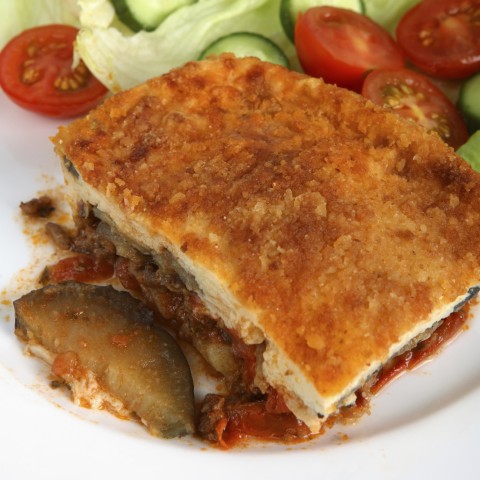
Restaurants with foreign cuisine – European, French, Italian, Chinese, Japanese, etc. These types of restaurants offer dishes that are typical for the corresponding foreign national cuisines.
Attraction-themed restaurants – These restaurants feature a specific architectural interior and exterior, such as restaurants on a ship or frigate, and usually, dining is accompanied by a special musical program.
7. How BulgarianPod101 Can Help You Learn Bulgarian?
The restaurant phrases in Bulgarian included in this ultimate Bulgarian travel guide will help you book a table in a restaurant on your own, as well as order food and beverages and have a more fulfilling dining experience. It will help you also combine pleasure and business – practice all those most common restaurant phrases in Bulgarian and at the same time have a wonderful dinner.
BulgarianPod101 has prepared this guide to help you learn Bulgarian restaurant phrases, or so you can refer to them whenever you need them.
Of course, if you don’t feel like this information is enough to meet your language needs, you can find a native Bulgarian teacher from the MyTeacher section. This language expert will get you acquainted with grammar rules and with new Bulgarian vocabulary that you will need on a daily basis in real-life situations and will accelerate your Bulgarian language learning.
We would be happy to hear your feedback about this review. Please do not hesitate to share your thoughts with us in the comments below.

The Names of Animals in Bulgarian

As babies begin picking up their native language, what are some of the first words they learn? Besides the obvious “mommy” and “daddy,” most children become familiar early on with the names of animals and the sounds they make.
So why not take a similar approach when learning a foreign language?
BulgarianPod101 has prepared this beginner-level Bulgarian animals list to help you immerse yourself in the Bulgarian language as naturally as little children do. In this article, you’ll learn the names of pets, farm animals, wild and dangerous animals in Bulgaria, marine animals, birds, reptiles, and even endangered species that are included in The Red Data Book of Bulgaria.
Why start with animal names? They’re easy to remember and they’re rather fun to say, so learning them will resemble a game. We advise you to make flashcards for animals in each of the categories presented here and regularly review them until you’ve achieved mastery. Enjoy!

 Table of Contents
Table of Contents
- Pets at Home
- Farm Animals
- Land Animals: Mammals in the Wild / Forest / Safari
- Aquatic / Marine Animals in the Black Sea
- Bugs and Insects
- Birds and Reptiles
- Animal Body Parts
- 9 Animal-Related Idioms and Slang Expressions
- Animal Names Game
- How BulgarianPod101 Can Help You Learn the Bulgarian Language
- Answers to the Animal Names Game
Pets at Home
Just like people of other nations, Bulgarians love taking care of pets. The most preferred pets in Bulgaria are cats and dogs, though some people own more exotic pets like parrots, chameleons, or rodents.

There are many reasons we enjoy having pets around the house:
- A pet makes a good companion, especially for seniors and lonely people.
- Having children take care of a pet is a great way to teach them how to be more responsible.
- Pets love their owners and respond to their attention and care.
- Owning a pet has many health benefits.
Now, take a look at the following list of pet names in Bulgarian:
| Куче | Kuche | Dog |
| Котка | Kotka | Cat |
| Папагал | Papagal | Parrot |
| Заек | Zaek | Rabbit |
| Хамстер | Hamster | Hamster |
| Златна рибка | Zlatna ribka | Goldfish |
| Златна рибка | Morsko svinche | Guinea pig |
| Костенурка | Kostenurka | Turtle |
| Хамелеон | Hameleon | Chameleon |
| Игуана | Iguana | Iguana |
Farm Animals
Bulgarians have been livestock breeders for centuries and have always relied on animals for food. Farm animals produce meat, dairy products, and eggs, which make up an integral part of the Bulgarian diet.
The main sectors in livestock breeding in Bulgaria are:
- Cattle breeding
- Sheep breeding
- Goat breeding
- Pig breeding
- Horse breeding
- Poultry breeding
It’s interesting to note that ostrich farming, beekeeping, and sericulture are also well-developed in Bulgaria.

Let’s take a look at the most popular farm animals in Bulgaria:
| Крава | Krava | Cow |
| Бик | Bik | Bull |
| Бивол | Bivol | Buffalo |
| Магаре | Magare | Donkey |
| Кон | Kon | Horse |
| Овца | Ovtsa | Sheep |
| Коза | Koza | Goat |
| Прасе | Prase | Pig |
| Кокошка | Kokoshka | Hen |
| Петел | Petel | Rooster |
| Пуйка | Puyka | Turkey |
| Патка | Patka | Duck |
| Гъска | Gaska | Goose |
- → In our Absolute Beginner lesson Farm Animals, you can find out more about different farm animals in Bulgaria.
Land Animals: Mammals in the Wild / Forest / Safari
There are a variety of wild animals in Bulgaria. Unfortunately, many of them are threatened with extinction and are listed in The Red Data Book of Bulgaria to be protected under law. In this section, we’ve listed some of the most popular mammals that reside in Bulgaria and around the world.
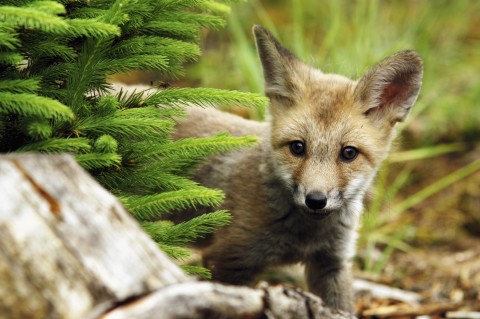
Wild Animals in Bulgaria
| Вълк | Valk | Wolf |
| Чакал | Chakal | Jackal |
| Лисица | Lisitsa | Fox |
| Белка | Belka | Beech marten |
| Дива котка | Diva kotka | Wildcat |
| Кафява мечка | Kafyava mechka | Brown bear |
| Див заек | Div zaek | Wild rabbit |
| Елен | Elen | Deer |
| Сърна | Sarna | Roe deer |
| Катерица | Kateritsa | Squirrel |
| Бобър | Bobar | Beaver |
| Видра | Vidra | Otter |
| Таралеж | Taralezh | Hedgehog |
| Глиган | Gligan | Boar |
Popular Wild Animals Around the World
| Лъв | Lav | Lion |
| Слон | Slon | Elephant |
| Камила | Kamila | Camel |
| Жираф | Zhiraf | Giraffe |
| Кенгуру | Kenguru | Kangaroo |
| Тигър | Tigar | Tiger |
| Бяла мечка | Byala mechka | Polar bear |
| Ягуар | Yaguar | Jaguar |
| Пантера | Pantera | Panther |
| Маймуна | Maymuna | Monkey |
| Коала | Koala | Koala |
| Панда | Panda | Panda |
Aquatic / Marine Animals in the Black Sea
Bulgaria’s eastern border encompasses the Black Sea Coast. For this reason, Bulgaria boasts a vast diversity of marine animals. There are 1,966 animal species in the Black Sea and several more in Bulgaria’s rich collection of rivers.
Here, we’ll give you the names of popular marine animals as well as those of the most dangerous sea animals in the Black Sea.

Popular Marine Animal Names in Bulgarian
| Кит | Kit | Whale |
| Акула | Akula | Shark |
| Риба | Riba | Fish |
| Октопод | Oktopod | Octopus |
| Пингвин | Pingvin | Penguin |
| Тюлен | Tyulen | Seal |
| Мида | Mida | Clam / Mussel |
| Рак | Rak | Crab |
| Омар | Omar | Lobster |
| Морско конче | Morsko konche | Seahorse |
| Сепия | Sepiya | Cuttlefish |
| Скарида | Skarida | Shrimp |
The Most Dangerous Sea Animals in the Black Sea
| Черноморска акула | Chernomorska akula | Black Sea shark |
| Ушата медуза | Ushata meduza | Common jellyfish |
| Риба-меч | Riba-mech | Swordfish |
| Морска котка | Morska kotka | Catfish |
| Морски скорпион | Morski skorpion | Lionfish |
| Морски дракон | Morski drakon | Weever |
| Риба звездоброец | Riba zvezdobroets | Stargazer fish |
- → You can learn even more vocabulary in this list of marine animals by BulgarianPod101. We have included a sample sentence with each word to help you understand how to use them.
Bugs and Insects
Considering that there are at least 900,000 insect species, it’s safe to say that there are more insect species than any other animal species in the world. As already mentioned, some creepy-crawlies (like bees and silkworms) play an important role in the lives of Bulgarian people. Others (like hornets, ticks, and centipedes) can be quite dangerous.
Below, you’ll find a brief list of the most popular Bulgarian bugs and insects.

| Муха | Muha | Fly |
| Оса | Osa | Wasp |
| Пчела | Pchela | Bee |
| Паяк | Payak | Spider |
| Богомолка | Bogomolka | Praying mantis |
| Стършел | Starshel | Hornet |
| Бръмбар | Brambar | Beetle |
| Калинка | Kalinka | Ladybug |
| Скакалец | Skakalets | Grasshopper |
| Комар | Komar | Mosquito |
| Кърлеж | Karlezh | Tick |
| Мравка | Mravka | Mravka |
| Пеперуда | Peperuda | Butterfly |
| Гъсеница | Gasenitsa | Caterpillar |
- → If you would like to learn the pronunciation of these words, make sure to visit our lesson Bugs and Insects on BulgarianPod101.com!
Birds and Reptiles
There are 426 bird species in Bulgaria, making it the European country with the second-greatest diversity of birds.
In addition, there are 33 species of reptiles residing in Bulgaria: 4 species of turtles, 16 species of snakes, and 13 species of lizards.
Reptiles in Bulgaria
| Змия | Zmiya | Snake |
| Гущер | Gushter | Lizard |
| Костенурка | Kostenurka | Turtle |
Birds in Bulgaria
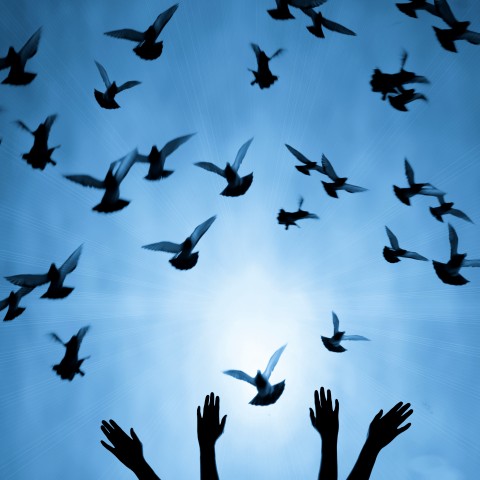
| Птица | Ptitsa | Bird |
| Чайка | Chayka | Seagull |
| Врабче | Vrabche | Sparrow |
| Врана | Vrana | Crow |
| Щъркел | Shtarkel | Stork |
| Гълъб | Galab | Pigeon |
| Кукумявка | Kukumyavka | Screech-owl |
| Кукувица | Kukuvitsa | Cuckoo |
| Бухал | Buhal | Owl |
| Пеликан | Pelikan | Pelican |
| Славей | Slavey | Nightingale |
| Орел | Orel | Eagle |
| Сокол | Sokol | Falcon |
| Лешояд | Leshoyad | Vulture |
| Кълвач | Kalvach | Woodpecker |
| Чучулига | Chuchuliga | Lark |
Animal Body Parts
Now that you know the essential animal names in Bulgarian, you should also pick up a few words related to animal body parts. This will help you better describe animals and make you more familiar with the topic in general.

| Глава | Glava | Head |
| Очи | Ochi | Eyes |
| Уши | Ushi | Ears |
| Опашка | Opashka | Tail |
| Крило | Krilo | Wing |
| Лапа | Lapa | Paw |
| Клюн | Klyun | Beak |
| Пера | Pera | Feathering |
| Рог | Rog | Horn |
| Козина | Kozina | Fur |
| Нокти | Nokti | Nails |
| Муцуна | Mutsuna | Muzzle |
| Гребен | Greben | Comb (of a rooster) |
| Перки | Perki | Fins |
9 Animal-Related Idioms and Slang Expressions
There are a variety of colorful Bulgarian idioms and slang expressions inspired by the disposition, behavior, and appearance of different animals. The following phrases are likely to come up in your conversations with native Bulgarian speakers from time to time.
#1
| Bulgarian expression | Магарешки инат |
| Pronunciation | Magareshki inat |
| Literal translation | Donkey’s stubbornness |
| This expression refers to showing great stubbornness. It’s close in meaning to the English expression “to be as stubborn as a mule.” | |
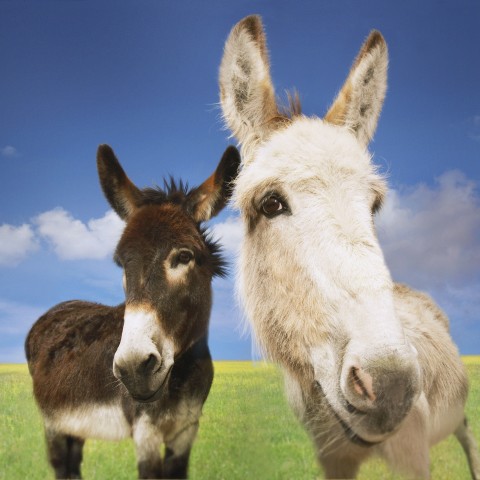
#2
| Bulgarian expression | Заблудена овца |
| Pronunciation | Zabludena ovtsa |
| Literal translation | Lost sheep |
| This one refers to a person who does not do the right thing, or in other words, someone who has lost their way. | |
#3
| Bulgarian expression | На куково лято |
| Pronunciation | Na kukovo lyato |
| Literal translation | In cuckoo’s summer |
| We use this expression in reference to something that is impossible or will never happen. | |
#4
| Bulgarian expression | Като риба на сухо |
| Pronunciation | Kato riba na suho |
| Literal translation | Like fish on dry land |
| This refers to someone who is not feeling well. The closest English expression is “like a fish out of water.” | |
#5
| Bulgarian expression | С трици маймуни ще лови. |
| Pronunciation | S tritsi maymuni shte lovi. |
| Literal translation | He is going to hunt monkeys with bran. |
| We use this expression in reference to someone who is trying to attain something large or valuable using very little. | |
#6
| Bulgarian expression | За вълка говорим, а той в кошарата. |
| Pronunciation | Za valka govorim, a toy v kosharata. |
| Literal translation | We are talking about the wolf and he is in the pen. |
| We often use this phrase when the person we’re talking about suddenly shows up. It’s similar in meaning to the English expression “speak of the devil.” | |
#7
| Bulgarian expression | Женя вълка за овцата. |
| Pronunciation | Zhenya valka za ovtsata. |
| Literal translation | I marry the wolf to the sheep. |
| We might say this if we’re trying to do something impossible. | |
#8
| Bulgarian expression | Той е черната овца. |
| Pronunciation | Toy e chernata ovtsa. |
| Literal translation | He is the black sheep. |
| Like in English, we use this expression in reference to someone whom others have a bad opinion about or who has abruptly separated themself from others. | |
#9
| Bulgarian expression | Когато стане вълка куче |
| Pronunciation | Kogato stane valka kuche |
| Literal translation | When the wolf becomes a dog |
| This refers to something that will never happen. | |
Animal Names Game
As mentioned at the beginning of this article, we advise you to use flashcards in order to memorize these Bulgarian animal names easier. Although it can take a long time to fully memorize new vocabulary, learning animal names is a critical step in your language learning journey.
To make this a little more fun, let’s make it a game!
Below, we have provided pictures of different animals. Your job is to fill in the blanks with the corresponding Bulgarian animal names. You can check your answers at the end of this article—and don’t forget that you can also print these out to use as flashcards later on!
| Bulgarian | Капка по капка, вир става. |
| Pronunciation | Kapka po kapka, vir stava. |
| Literal | Drop by drop turns into a pool. |
| Equivalent | Drop by drop is the water pot filled. |
| This Bulgarian saying means that diligence and persistence lead to success. Even a few drops of water, if collected instead of being wasted, can add up over time so that you have enough to fill an entire pot. The same concept applies to money, experience, and any life skill that requires endurance. If you want to be successful, you have to be patient. | |

#2
| Bulgarian | Който се учи, той ще сполучи. |
| Pronunciation | Koyto se uchi, toy shte spoluchi. |
| Literal | A person who learns will succeed. |
| Equivalent | Knowledge is power and power is success. |
| If you want to be successful, then learn, learn, learn. The more knowledge you gain, the more confidence you’ll have while meeting different challenges in your work. Although knowledge alone is not enough, it’s an important part of achieving success. Now, let’s apply this proverb to Bulgarian language learning. In order to become a fluent Bulgarian speaker, you must learn more and more Bulgarian words. Add new words to your vocabulary every single day and you’ll succeed. | |
#3
| Bulgarian | Капката дълбае камъка не със сила, а с постоянство. |
| Pronunciation | Kapkata dalbae kamaka ne sas sila, a s postoyanstvo. |
| Literal | A drop carves a stone not with force, but with perseverance. |
| Equivalent | If you want a well, dig only in one place. |
| This Bulgarian saying means that people who would like to become real experts in something should work hard in their field until they’ve perfected their skills. There are many people out there who try hard in the beginning, only to give up once they get tired or discouraged, which prevents them from becoming successful. Everyone is able to be successful if he or she is persistent enough to continue even in the face of challenges. | |
#4
| Bulgarian | Ако не кърпиш вехтото, ново няма да носиш. |
| Pronunciation | Ako ne karpish vehtoto, novo nyama da nosish. |
| Literal | If you don’t patch your old cloth, you will not wear a new one. |
| Equivalent | Spending is quick, earning is slow. |
| Older Bulgarians in particular tend to prefer saving money over spending it on unnecessary things. Years of stringency made them frugal, and they respect people who know how to save money in order to spend it when a real need arises. | |

2. Bulgarian Proverbs About Wisdom
Bulgarians have many proverbs about wisdom. In fact, they even have a national folklore character named Хитър Петър (Hitar Petar), who is a symbol of cunning, wisdom, and wit. That said, let’s go over a few inspirational Bulgarian proverbs related to wisdom!
#5
| Bulgarian | Утрото е по-мъдро от вечерта. |
| Pronunciation | Utroto e po-madro ot vecherta. |
| Literal | The morning is wiser than the evening. |
| Equivalent | An hour in the morning is worth two in the evening. |
| On the one hand, this Bulgarian proverb suggests that the morning hours are the most productive ones. On the other hand, people in Bulgaria say this proverb when they have an important decision to make and it’s already late in the evening. They believe that making the decision should be postponed until the next morning, as the brain is tired in the evening and cannot think clearly. In the morning, when a person wakes up, he or she can consider problems much more efficiently and are more likely to make the right decision. That is why the morning is wiser than the evening. | |
#6
| Bulgarian | Докато мъдрите се намъдруват, лудите се налудуват. |
| Pronunciation | Dokato madrite se namadruvat, ludite se naluduvat. |
| Literal | While the wise people philosophize, the mad people go crazy. |
| This Bulgarian proverb means that if the rulers are weak, the whole nation will suffer at the hands of offenders. In this case, the word “wise” is used in an ironic sense, because these “wise people” only philosophize instead of taking real actions to stop the criminals. | |
#7
| Bulgarian | Ум царува, ум робува, ум патки пасе. |
| Pronunciation | Um tsaruva, um robuva, um patki pase. |
| Literal | The mind reigns, the mind is enslaved, the mind grazes ducks. |
| Equivalent | Some are wise and some are otherwise. |
This Bulgarian saying means a few different things:
| |

#8
| Bulgarian | По дрехите посрещат, по ума изпращат. |
| Pronunciation | Po drehite posreshtat, po uma izprashtat. |
| Equivalent | First impression is from your dress, last impression from your brains/wits. |
| The first thing people notice about you is your clothes, so they might initially be impressed by your appearance. But after talking with you, they’ll get an impression of your brain or wits. Wiser people don’t talk too much, and Bulgarians usually don’t welcome those who are too talkative. They like balanced conversations, so be aware of this if you’re ever invited to a Bulgarian’s home. | |

- → Need more motivation? Then check out our list of the Top 10 Inspirational Bulgarian Quotes!
3. Bulgarian Proverbs About Love
As a popular song states, “All you need is love.” In that vein, let’s explore some of the most popular Bulgarian love proverbs…
#9
| Bulgarian | Любов хубост не гледа. |
| Pronunciation | Lyubov hubost ne gleda. |
| Literal | Love does not look for beautiful appearance. |
| Equivalent | Beauty is not in the face; beauty is a light in the heart. |
| When one person loves another, he or she doesn’t notice any defects in the appearance or character of the one they love. A Bible proverb written by Solomon says that “love covers over all wrongs.” | |
#10
| Bulgarian | Старата любов ръжда не хваща. |
| Pronunciation | Starata lyubov razhda ne hvashta. |
| Equivalent | Old love does not rust. |
| This saying means that old feelings do not fade away. Metal may rust over time and waste away, but feelings of love typically don’t and can even stay as strong as they were in the very beginning! | |
It’s interesting to note that Bulgarians have another proverb which states exactly the opposite:
#11
| Bulgarian | Очи, които дълго не се виждат, се забравят. |
| Pronunciation | Ochi, koito dalgo ne se vizhdat, se zabravyat. |
| Literal | Eyes that have not seen each other for a long time can be forgotten. |
| Equivalent | Out of sight, out of mind. |
| If two lovers are separated for a long time, they might forget each other—especially if their love is not well-rooted. | |

#12
| Bulgarian | Младост без любов — пролет без цвете. |
| Pronunciation | Mladost bez lyubov — prolet bez tsvete. |
| Literal | Youth without love is spring without a flower. |
| Equivalent | Without love, everything is in vain. |
| One cannot be happy without loving and being loved. This Bulgarian proverb states that love is the essence of life, making everything around it beautiful—just like flowers make springtime the most beautiful season. | |
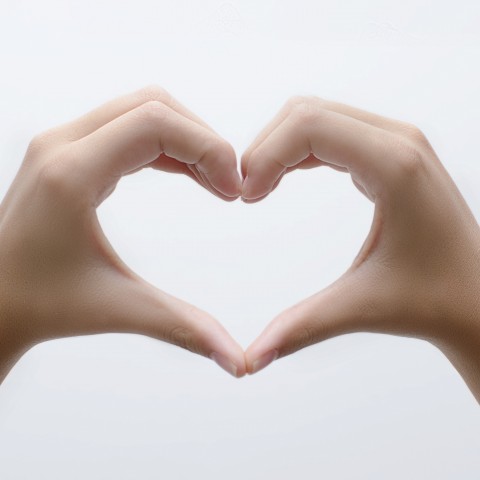
- → Want to impress your Bulgarian sweetheart? Then study these 15 Bulgarian Love Phrases for Valentine’s Day!
4. Bulgarian Proverbs About Friendship
Bulgarians value true friendship, so it should come as no surprise that we have many proverbs on the topic. Who knows? Maybe they’ll help you understand who your true friends are!
#13
| Bulgarian | Приятел в нужда се познава. |
| Pronunciation | Priyatel v nuzhda se poznava. |
| Literal | A friend is recognized in need. |
| Equivalent | A friend in need is a friend indeed. |
| A true friend will always help out in times of need, and will never leave his or her friend to suffer alone. They’ll dedicate their time, money, and efforts to help you, doing everything they can to make you feel better. A false friend, on the other hand, will hide from you as soon as you run into troubles. | |
#14
| Bulgarian | Кажи ми какви са приятелите ти, за да ти кажа какъв си. |
| Pronunciation | Kazhi mi kakvi sa priyatelite ti, za da ti kazha kakav si. |
| Equivalent | Tell me who your friends are, and I will tell you who you are. |
| This Bulgarian saying means that the friends you hang out with can define you. This makes sense, as friends tend to share personality and behavioral traits. As such, you can tell a lot about a person based on who their friends are. | |
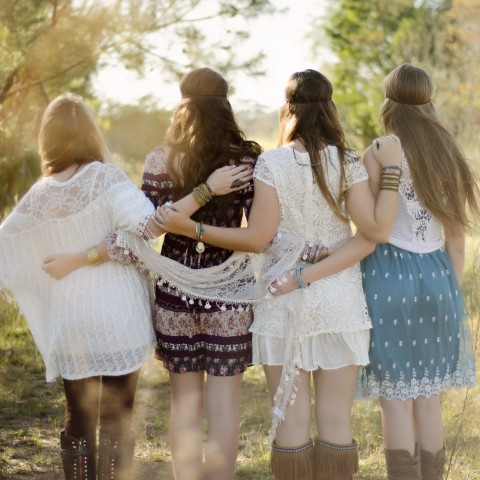
#15
| Bulgarian | Лют човек приятел не държи. |
| Pronunciation | Lyut chovek priyatel ne darzhi. |
| Literal | A furious man does not keep any friends around. |
| It’s difficult for some people to find friends. They might think that the problem lies with other people, but often the problem is hidden within themselves. No one wants to hang around or be associated with an angry person. | |

#16
| Bulgarian | Приятелството си е приятелство, но сиренето е с пари. |
| Pronunciation | Priyatelstvoto si e priyatelstvo, no sireneto e s pari. |
| Literal | Friendship is friendship, but cheese costs money. |
| Although a friend in need is a friend indeed, a true friend will not take advantage of a friend’s generosity. Just because your friend sells cheese doesn’t mean you should expect to get any for free! | |
- → This was only a small sample of what Bulgarians have to say on the topic. Check out our vocabulary list of the Top 10 Bulgarian Quotes About Friendship for even more words of wisdom!
5. Bulgarian Proverbs About Food
Food is an important detail of one’s life, so here are a few wise Bulgarian sayings related to food.
#17
| Bulgarian | Никой не е по-голям от хляба. |
| Pronunciation | Nikoy ne e po-golyam ot hlyaba. |
| Literal | No one is larger than bread. |
| This saying reveals the attitude that Bulgarians have toward bread and how important it is to them. In Bulgaria, bread plays an important role and it’s always present on the table. It’s also considered the most holy of foods. | |

#18
| Bulgarian | Умният навсякъде си изкарва хляба. |
| Pronunciation | Umniyat navsyakade si izkarva hlyaba. |
| Literal | A smart man earns his bread anywhere. |
| Equivalent | A smart man can earn a living anywhere. |
| The saying “to earn your own bread” in Bulgarian means to earn a living, which again underlines the importance of bread in Bulgarian culture. This saying means that the wise can overcome all challenges so that they always have enough to live on wherever they are. | |
#19
| Bulgarian | Гладна кокошка просо сънува. |
| Pronunciation | Gladna kokoshka proso sanuva. |
| Literal | A hungry hen dreams of millet. |
| This proverb relates to wishful thinking. It means that some people dream of things greater than what they have, but they take no action to make it happen in reality. | |
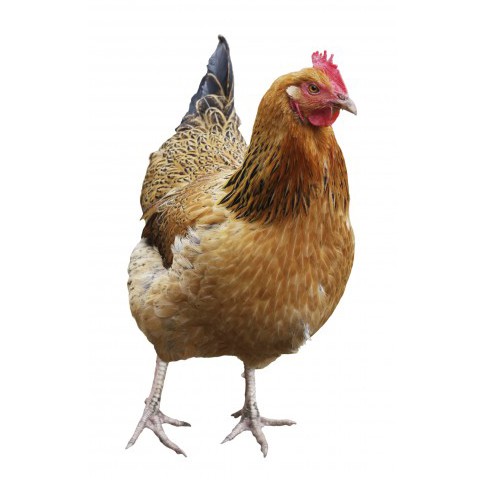
#20
| Bulgarian | Ден година храни. |
| Pronunciation | Den godina hrani. |
| Translation | A single day helps you get food for the whole year. |
| In the past, this saying meant that every day of the year was equally important for earning a living. But nowadays, it’s mostly associated with unfair traders who make their prices unrealistically high in order to make lots of money quickly and remain idle the rest of the year. | |
- → Head over to our free vocabulary list on Talking About Food and Ingredients in Bulgarian to further expand your vocabulary!
6. Bulgarian Proverbs About Health
Health is among the most valuable acquisitions a person can have, so let’s see what Bulgarian proverbs have to say about it.
#21
| Bulgarian | Здрав дух – здраво тяло. |
| Pronunciation | Zdrav duh – zdravo tyalo. |
| Equivalent | A healthy mind, a healthy body. |
| This Bulgarian proverb expresses the importance of inner peace, forgiveness, trust, etc., for people’s wellbeing. We should keep our spirit healthy in order to have a healthy body, as stress, anxiety, suspicion, and other negative feelings can increase our chances of getting sick. | |
#22
| Bulgarian | Никой не може да бъде по-добър лекар от верния приятел. |
| Pronunciation | Nikoy ne mozhe da bade po-dobar lekar ot verniya priyatel. |
| Equivalent | No one is a better doctor than a faithful friend. |
| This Bulgarian saying is a continuation of the previous one. A faithful friend is able to bear our griefs, so we won’t feel alone in our sorrow. A similar proverb goes: Споделената мъка е половин мъка, а споделената радост е двойна радост. Spodelenata maka e polovin maka, a spodelenata radost e dvoyna radost. “Shared sorrow is half the sorrow; shared joy is double the joy.” | |
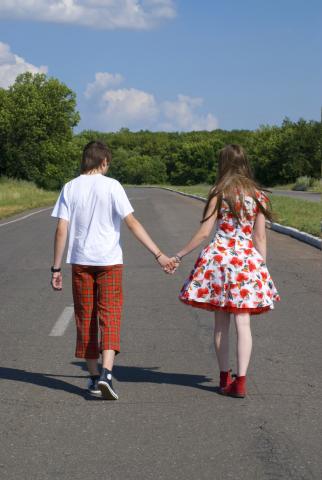
#23
| Bulgarian | Живот, здраве и добри помисли като има човек, пари не му трябват. |
| Pronunciation | Zhivot, zdrave i dobri pomisli kato ima chovek, pari ne mu tryabvat. |
| Translation | When a person has a good life, good health, and good thoughts, he does not need money. |
| Мoney can’t buy happiness! This saying is as old as money, but it’s true. You can find poor people barely earning a living who are constantly smiling and happy, as well as millionaires who are so miserable and depressed that they take their own lives. This Bulgarian proverb states that there are three factors involved in being happy: life, health, and good thoughts. | |
#24
| Bulgarian | Здравето е най-големият имот. |
| Pronunciation | Zdraveto e nay-golemiyat imot. |
| Translation | Our health is our largest property. |
| No matter how many properties we have, and no matter how luxurious and large they are, we cannot enjoy them (or our lives) if we aren’t healthy. That’s why health is considered one of the most valuable and precious things in this world! | |
Do you have health problems you would like to share with your Bulgarian friends in their own language? BulgarianPod101 can help! Just head over to our vocabulary list of Bulgarian Vocabulary for Common Health Problems!
7. Bulgarian Proverbs About Work and Language Learning Efforts
Those who are diligent and persistent in their language learning efforts will soon see progress and advance quickly. For extra motivation, let’s see what Bulgarian proverbs say about work and learning.
#25
| Bulgarian | Човек се учи, докато е жив. |
| Pronunciation | Chovek se uchi, dokato e zhiv. |
| Literal | A person learns while he is alive. |
| Equivalent | You are never too old to learn. |
| This popular Bulgarian proverb means that we never stop learning, as knowledge itself is endless and our life is too short to comprehend it all. On the other hand, this saying could also be applied to your Bulgarian language studies. The more you learn, the more successful you’ll be over time. | |
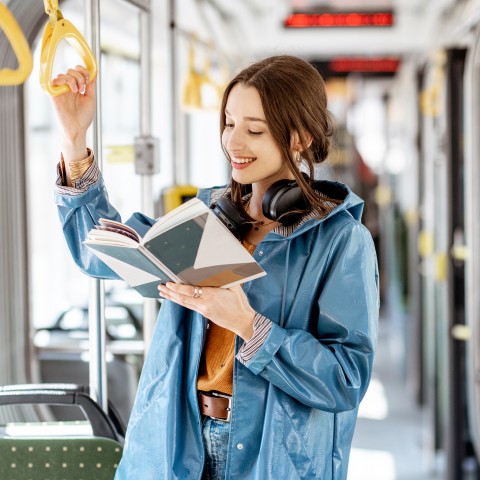
#26
| Bulgarian | Без труд почивката не е сладка. |
| Pronunciation | Bez trud pochivkata ne e sladka. |
| Literal | Without work, rest is not sweet. |
| This saying encourages diligence. It suggests that those who don’t work cannot feel the sweetness of rest. They probably cannot sleep as well as those who work hard all day. | |
#27
| Bulgarian | Работата на ум учи. |
| Pronunciation | Rabotata na um uchi. |
| Literal | The work teaches the mind. |
| One only gains practical skills and experience through working, and the same concept applies to language learning. Once you gain minimal knowledge of a language, you should start practicing it in real life to expand upon your skills and gain new ones. Passive learning is often in vain. | |
#28
| Bulgarian | Лозето не ще молитва, а мотика. |
| Pronunciation | Lozeto ne shte molitva, a motika. |
| Literal | The vineyard does not need a prayer, but a hoe. |
| Equivalent | God helps those who help themselves. |
| This saying is quite popular in Bulgaria, and it conveys the importance of hard work in being successful. If you want your vineyard to give fruit, don’t just sit beside it and pray; take the hoe and start working. No matter how many prayers you say, you won’t receive a good crop unless you work for it. | |

8. How BulgarianPod101 Can Help You Learn Bulgarian
In this Bulgarian proverbs guide, you’ve picked up some useful phrases and gained some valuable insight into the beauty of Bulgarian culture. Learning these proverbs will make it easier for you to communicate with the local people and help you better fit in during your stay in Bulgaria.
If you would like to learn even more Bulgarian proverbs or dig deeper into Bulgarian grammar, we recommend you try our MyTeacher service for Premium PLUS members. You can choose a private teacher from our team of experienced Bulgarian language experts, who will give you additional information on any topics of your choosing and provide you with practical assignments to hone your skills.
We hope you enjoyed today’s lesson on Bulgarian proverbs, and that you feel a little bit wiser now. 😉 Before you go, let us know in the comments which of these proverbs you can relate to the most right now. We look forward to hearing from you!

Travel Guide: The Best Places to Visit in Sofia, Bulgaria

Bulgaria is an amazing country that has many adventures to offer foreigners. There are so many points of interest that the options can be overwhelming!
In this Sofia travel guide, we’ll get you acquainted with some of the most interesting places to visit in Sofia and provide you with travel tips to give you more confidence during your very first visit to the Bulgarian capital.
BulgarianPod101 invites you on this intriguing virtual tour before you travel to Sofia, so you can feel the atmosphere of this big city before you even arrive.

 Table of Contents
Table of Contents
- Before You Go
- Sofia Travel Tips
- 7 Must-See Places in Sofia for a 1-3 Day Trip
- Highly Recommended Places for a 4-7 Day Trip (or Longer)
- Bulgarian Survival Phrases for Travelers
- How BulgarianPod101 Can Help You Master Bulgarian
Before You Go
Before you go on this exciting journey, you may want to learn more about the city you’ll be visiting. In the following sections, you’ll find some basic information about Sofia’s past, population, and climate.
History
Sofia is the capital city of Bulgaria. It’s an ancient city with a long history dating back to 7000 BC when Thracian tribes settled here. Over the following centuries, the Thracians were occupied by the Romans and the Ottomans. The city’s location at the foot of Vitosha Mountain has been considered strategic, thus very attractive for various conquerors. As this land has been inhabited by many tribes and cultures, the remnants of them can still be seen in Sofia. There are Roman ruins, an amphitheater, old churches, and many other sights in this large city.
The city’s name has also been changed many times by new conquerors. During the Roman reign, the city was known as Serdica. In those times, it was an important center that had influence over the whole region. Today, you can still see the Roman ruins around the Saint Sofia Church. There are glass windows in the church, through which you can see the old Roman theater. You can also see the big amphitheater’s ruins nearby, testifying that this lively cultural center was once located here, under modern Sofia.
Before the city of Sofia received its modern name following its liberation from the Ottoman yoke in 1878 by the Russian Empire, the city was also called Sredets and Triaditsa.
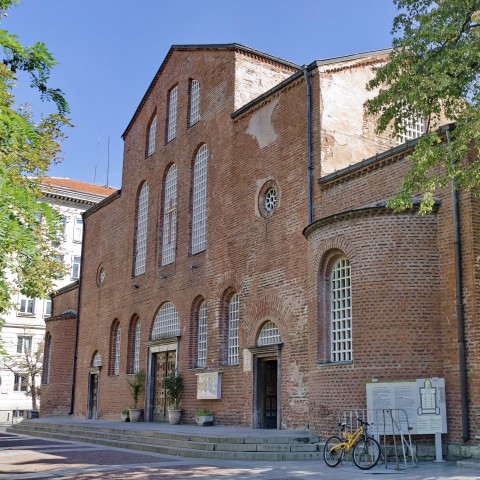
Population
Sofia was heavily populated in the late eighteenth century, home to about 70,000 people. In 1878, the population shrank to only 11,649 people (down from the 19,000 residents eight years prior). However, once Sofia became the new capital of Bulgaria, the number of residents started to increase. Today, the population of Sofia is about 1.23 million—almost 20% of the country’s total population.
Climate
You’ll find this information helpful if you would like to know the best time to visit Sofia. Let’s see what the weather is like in Sofia throughout the year.
The winter months in Sofia are December, January, and February. If you plan to visit Sofia in winter, be prepared for cold temperatures and snowy weather, especially in January and February which are considered the coldest months. The temperature can drop to below -15 °C (5 °F), but is usually about 0 – 5 °C (32 – 41 °F). The snow cover in Sofia lasts about sixty days.
Summers in Sofia (June through August) are sunny and hot. The temperature can exceed 35 °C (95 °F) near the end of July and the beginning of August. This is the time of year when the city receives the most tourists.
Spring and autumn have relatively mild weather, though the weather is more variable and dynamic during these seasons and there could be thunderstorms. There could be fog in Sofia, especially at the beginning of spring and winter, when the weather is subject to drastic changes.
Sofia Travel Tips
If you’re planning to travel to Sofia for the first time, these Sofia travel tips will be very helpful. In the following sections, we’ll discuss currency, accomodation prices, visa rules, food, and transportation.
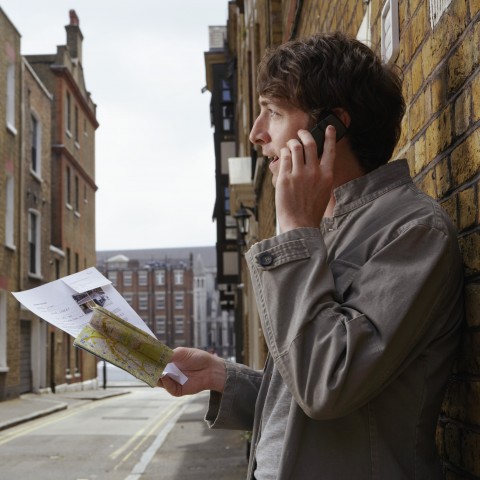
Currency in Bulgaria
The Bulgarian lev is the national currency. 1 euro is pegged to 1.96 leva, which means that 2 Bulgarian leva make roughly 1 euro. So when you’re trying to figure out how much something in Bulgaria costs in euros, the easiest way is to divide the amount by two.
Accomodation Prices in Sofia
The price of your accommodation will depend on the level of luxury you prefer:
- Luxury: There are many five-star and four-star hotels that typically cost $100 or more per night.
- Mid-range: The mid-range price for accommodation, depending on the conditions, ranges from $40 to $80 per night.
- Budget: If you prefer to stay in a hostel, a bed in a dormitory will cost between $5 and $12 per night. If you would like to rent a double bed room, it may cost up to $40.
You can learn some basic words and phrases for talking about accommodation in our lesson What Are Your Accommodation Options in Bulgaria?
Visa Rules
Visa rules in Bulgaria differ based on the nationality of the traveler. If you’re an American, you’ll be allowed to stay for up to ninety days and renew your stay every six months. Bulgaria is not part of Schengen yet, but it is part of the EU. If you hold a valid Schengen visa, you’ll be able to take advantage of a visa-free regime and stay in Bulgaria for up to three months within any six-month period. The same conditions apply to residents of Romania, Cyprus, and Croatia.
There are three types of visas to Bulgaria:
- Visa A for airport transit, which costs $71
- Visa C for a short stay (up to ninety days), for transit or a planned stay, which costs about $71; however, the exact price may vary based on the international agreements
- Visa D for a long stay, which costs $118 when you’re planning a stay of six months, and $236 for a one-year stay
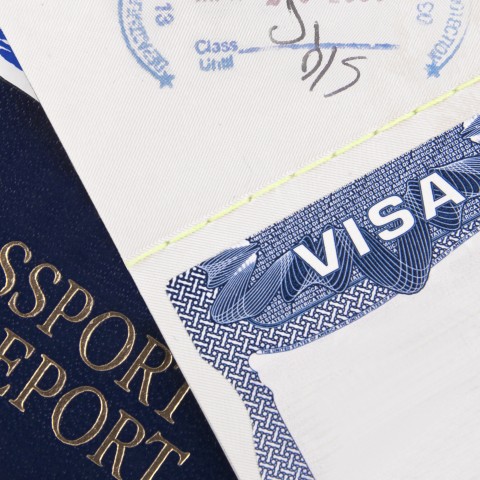
Food in Sofia
Vegetarians will find Bulgaria a great place to dine due to the numerous fruits, vegetables, and dairy products available in the stores and markets. Even vegans can find food here in every season, and there are some restaurants that offer solely vegan food (such as Edgy Veggy, Soul Kitchen, Loving Hut, and Colibri Kitchen).
Keep in mind that Bulgarians are obsessed with dairy foods like yogurt and cheese, which always have to be present on their tables (alongside bread). In vegetarian restaurants, you can order the national Shopska salad with cheese, stuffed peppers, banitsa, cold soup tarator, breaded cheese, guvech, etc.
Like most Balkan nations, the majority of Bulgarians are meat-lovers. If you prefer meat, there are so many dishes to choose from. We recommend you try the kapama, a traditional dish prepared with different types of layered meat and stuffed cabbage leaves. Kebapche (a minced meat stick with spices grilled on a barbeque) and shkembe chorba (tripe soup) are also great choices.
- ➢ BulgarianPod101 provides a helpful list of Bulgarian phrases to use in a restaurant for ordering food, and a list of the most popular Bulgarian foods. Check them out to brush up on some basic Bulgarian before your trip!
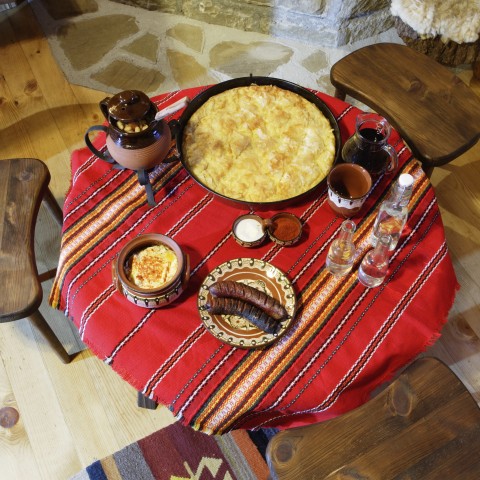
Transportation in Sofia
If you would like to use the cheapest possible transportation in Sofia, then use the Sofia metro. It can be a little bit confusing, but it will take you from the airport to the downtown area for less than 1 euro. This trip will take about thirty minutes. Always have your ticket within easy reach, as the ticket control might show up at any stop to check it.
The other options for transportation include taking a bus or a tram. In these cases, you’ll be able to buy tickets directly from the driver. Make sure to punch your ticket inside the yellow punchers located on the poles of the bus or tram, as this will validate it. Those who don’t have a valid ticket upon control check will be fined 30 leva.
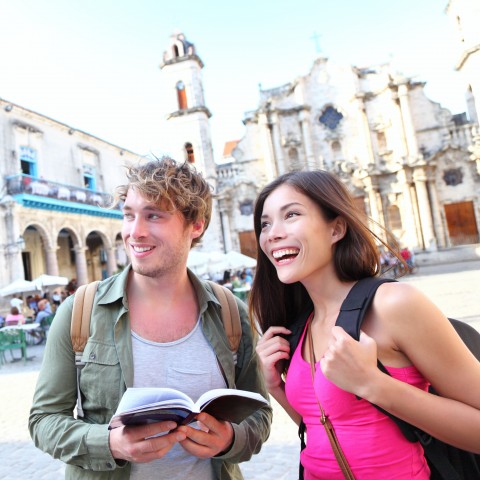
7 Must-See Places in Sofia for a 1-3 Day Trip
It’s time to start our virtual journey of Sofia. To start, let’s look at seven places you must visit in Sofia if you’re short on time!
#1: Boyana Church
In Bulgarian: Боянска църква музей (Boyanska tsarkva muzey)
This medieval Bulgarian Orthodox church is located at the base of Vitosha Mountain, in a region that is also called Boyana.
It was built in three stages, from the tenth century to the middle of the nineteenth century. There are 240 human images and 89 scenes depicted on its walls. UNESCO describes Boyana Church as “one of the most complete and perfectly preserved monuments of east European medieval art,” so it’s definitely worth visiting if you’re interested in medieval culture, architecture, and art. As this church is located in the outskirts of Sofia, it’s good to plan your visit ahead of time.

#2: Alexander Nevsky Cathedral
In Bulgarian: Катедрала “Свети Александър Невски” (Katedrala “Sveti Aleksandar Nevski”)
This Orthodox cathedral was built in a neo-Byzantine style in the nineteenth century and is named after Alexander Nevsky, a Russian saint. It displays the relics of the saint to the left of the altar.
This church is located in the very center of Sofia, just behind the Bulgarian parliament and adjacent to St. Sofia Church. There are many other notable landmarks nearby, so you can plan to visit them all in a single day. Some of these locations include:
- The National Art Academy
- The Sofia Opera and Ballet Hall
- The National Gallery of Foreign Art
- The Monument of the Unknown Soldier
- A park with a small flea market in it
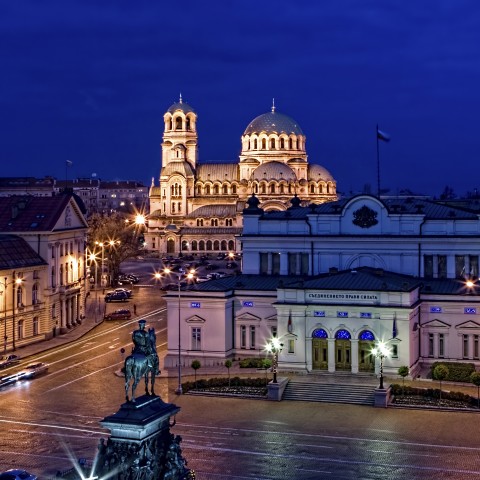
#3: Rotunda of St. George
In Bulgarian: Храм-ротонда “Св. Георги” (Hram-rotonda “Sveti Georgi”)
This small, round church was initially built as a Roman bath in the fourth century when the city of Serdica belonged to the Roman Empire, and was later transformed into an Orthodox church. Located in the city’s center, this is part of a larger archeological complex and is the oldest building in the Bulgarian capital. You’ll be able to see medieval frescoes inside and Roman streets outside.
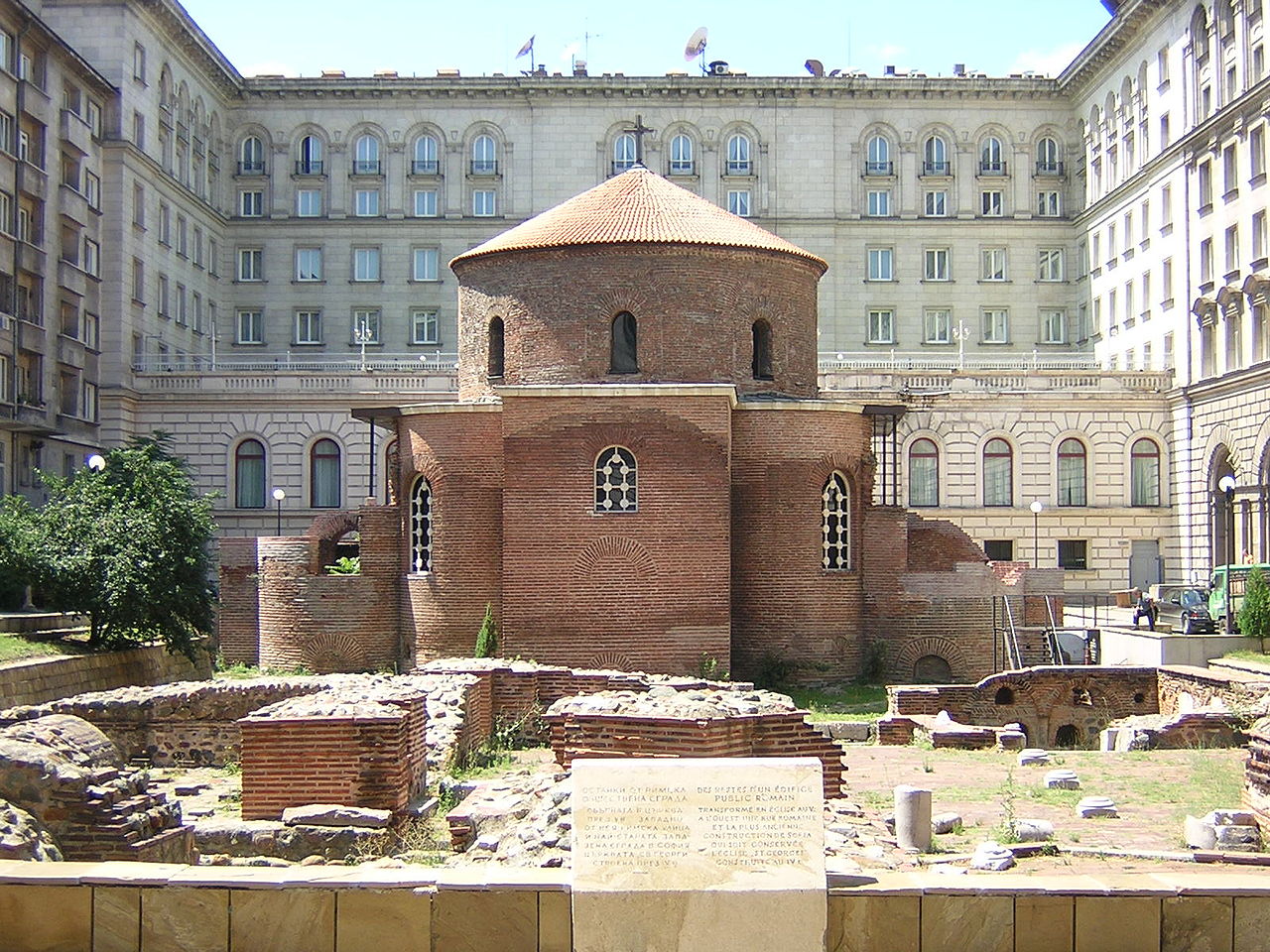
#4: Earth and Man Natural Museum
In Bulgarian: Национален музей “Земята и хората” (Natsionalen muzey “Zemyata i horata”)
This sight would definitely be attractive for geology-lovers as well as children who are interested in science, as it features collections of huge minerals and their derivatives. This museum is located in the neighborhood of Lozenets and is one of the largest mineralogical museums in the world.

#5: Kuklite (The Dolls) Art House
In Bulgarian: Арт къща куклите (Art kashta kuklite)
This is a fascinating place for kids, containing more than 3,000 dolls from all over the world. It also offers weekly workshops explaining how to make a doll, though you’ll need to book in advance to attend one. If you’re traveling to Sofia with children, a visit here would be a great opportunity for them to see porcelain, ritual, modern, vintage, and antique dolls as well as marionettes. Young and old alike will be delighted by these whimsical doll displays!
The museum is located in the center of Sofia, not too far from the Rotunda of St. George. You can add it into your schedule while you visit different landmarks located in this area.
#6: Muzeiko
In Bulgarian: Музейко (Muzeyko)
Muzeiko is a museum for children dedicated to science and the arts. The project cost twenty million dollars to get started, and today features over 130 games and activities that will help your little ones easily learn interesting science facts. There’s also a planetarium that has a show, so you can secure some time for this as well. This kids’ museum is located in the Students’ City neighborhood in Sofia.
#7: National Archaeological Museum
In Bulgarian: Национален археологически музей (Natsionalen arheologicheski muzey)
The National Archaeological Museum is located in the center of Sofia, at the Atanas Burov Square.
This museum housed a mosque in the fifteenth century, but opened as a museum in 1905. It includes ancient Thracian, Greek, and Roman artifacts, as well as medieval books and collections. It’s appropriate for people of all ages who are interested in Bulgarian culture and history. A 3D virtual tour is available online.
Highly Recommended Places for a 4-7 Day Trip (or Longer)
Are you planning a longer stay? Great! This will give you ample time to see even more of the best places to visit in Sofia, Bulgaria. Here are a few that we recommend!
#8: Eagles’ Bridge
In Bulgarian: Орлов мост (Orlov most)
This bridge is located just below the Monument to the Soviet Army in the heart of Sofia. It’s called Eagles’ Bridge because of the four majestic iron eagles located on top of the pillars. Beneath the bridge, there’s a small river flowing. This bridge, together with the Lions’ Bridge, is among the most popular tourist destinations. Don’t miss it if you’re nearby!
#9: Lions’ Bridge
In Bulgarian: Лъвов мост (Lavov most)
This gorgeous bridge is called Lions’ Bridge because of the four metal lions located on each of its pillars. The bridge goes over the Vladaya River, and it’s located on Maria Luiza Boulevard only a few meters from the Ladies Market (in Bulgarian: Женския пазар [Zhenskiya pazar]).

#10: Ivan Vazov National Theater
In Bulgarian: Народен театър Иван Вазов (Naroden teatar Ivan Vazov)
This National Theater is built in a Viennese style and is located in the central City Garden. It’s decorated with statues of Apollo among the muses, which have golden instruments. The first play performed here was Vazov’s The Outcasts. The theater was damaged during World War II, but was later renovated to maintain the architecture and original appearance of the building. This landmark is one of the symbols of Bulgarian culture.
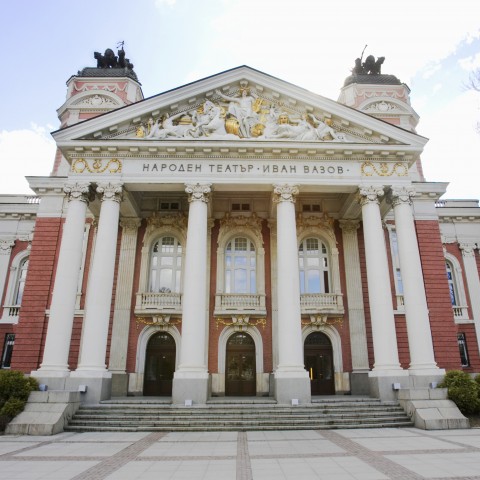
#11: Roman Wall
In Bulgarian: Римска стена (Rimska stena)
The actual Roman ruins can be found inside the hotel lobbies and in the metro. Strangely enough, although it’s called the Roman Wall, this wall was built by the Ottomans in the sixteenth century. It was part of a religious complex, from which only this stone gate remains. It’s located in the Lozenets region near the Saturday “Roman Wall” farmers’ market.

#12: Sofia Opera and Ballet Hall
In Bulgarian: Софийска опера и балет (Sofiyska opera i balet)
This hall has been occupied by the Sofia Opera since 1957. Tickets here are more affordable than those of halls in many other European cities. The building is decorated with multiple figures of performers, namely orchestra musicians and singers. It’s located in the city center.
#13: The Snail House
In Bulgarian: Къща Охлюв (Kashta Ohlyuf)
The Snail House is the most extravagant building in Sofia, located in the district of Simeonovo. This colorful five-story building is built in the form of a giant snail, and its non-standard shape fits well with the surrounding environment. There are small butterflies and ladybugs on the roof, along with some other smaller snails. It was built in 2008 using entirely eco-friendly materials. It features no edges or corners, and no bricks were used in its construction.
#14: Sofia Graffiti Tour
In Bulgarian: София Графити Тур (Sofiya Grafiti Tur)
If you’re a graffiti-lover, this two-hour evening tour (Saturdays and Sundays only) would be an exciting experience. It takes you to the best urban art streets in Sofia with thriving graffiti scenes, and the best part is that you choose how much to pay for the tour!
#15: Borisova Gradina Park
In Bulgarian: Княз-Борисова градина (Knyaz-Borisova Gradina)
This park is named after Bulgarian Tsar Boris III. It’s the most popular, the largest, and the oldest park in Sofia. Among the landmarks located in this park are:
- Lake Ariana
- The national stadium “Vasil Levski”
- The Bulgarian Army Stadium
- The Lake with the Lilies
- Many monuments of prominent Bulgarians
- The Astronomical Observatory of Sofia University
- The Maria-Louisa Swimming Complex
- The Sofia TV Tower
- The Mound of Brotherhood
- The Japanese Corner
#16: Cherni Vrah
In Bulgarian: Черни връх (Cherni vrah)
This is the highest peak of Vitosha Mountain, rising to 2290 meters (about 7513 feet). The best time for hiking this summit is in the summer, and there’s a guided hike offered for inexperienced climbers. Many locals enjoy spending a weekend on Vitosha Mountain while in the capital. This unforgettable hike will reveal amazing views over the city and other mountains.
Bulgarian Survival Phrases for Travelers
To conclude our Sofia travel guide, let’s look at the most important Bulgarian phrases you’ll need to know before you travel to Sofia. You could write these phrases down in your diary or notebook and look them up whenever you need to speak with a Bulgarian, though memorizing them may give you the best experience.
- Hello. – Здравейте (Zdraveyte)
- Thank you. – Благодаря (Blagodarya)
- Goodbye. – Довиждане (Dovizhdane)
- Sorry. – Извинете (Izvinete)
- Very good. (Perfect.) – Много добре (Mnogo dobre)
- I don’t/can’t understand. – Не разбирам (Ne razbiram)
- Where is the restroom? – Къде е тоалетната (Kade e toaletnata)
- How much is it? – Колко струва (Kolko struva)
- I want this. – Искам това (Iskam tova)
- Help! – Помощ (Pomosht)
You can learn more practical phrases in our Survival Phrases lesson series!
How BulgarianPod101 Can Help You Master Bulgarian
BulgarianPod101 is excited to share with you this travel guide containing the best places to visit in Sofia, Bulgaria. Hopefully, this virtual tour around Sofia has given you the motivation and inspiration you need to make plans and visit Sofia yourself.
If you need to learn some more survival phrases or conversational Bulgarian, our MyTeacher service would be of great help to you. You can choose your own private Bulgarian teacher, who will reveal to you the beauty of the language and make it easier for you to start understanding and speaking it.
Before you go, which of these Sofia attractions do you most want to see, and why? We look forward to hearing from you!

Give Your Vocab a Boost: English Words in Bulgarian

If you’ve just started studying the Bulgarian language, you might need additional motivation to cope with the initial shock that this language usually provokes in foreigners. To give you more confidence for your Bulgarian language learning journey, we have prepared this overview of Bulgarian words in English (and vice-versa).
You’ll definitely be surprised to learn how many words are the same in English and Bulgarian. But this is great news for all learners of the Bulgarian language! Why? Because it means you already know all of these words, their meanings, and how to use them in different situations. That’s a great start, isn’t it?
BulgarianPod101 has prepared this guide to help you quickly recognize these well-known words in Bulgarian so that you can easily enrich your vocabulary and have more effective communication with Bulgarians.


Table of Contents
- Why is it Important to Study English Words Used in the Bulgarian Language?
- Why Are There So Many English Words in Bulgarian?
- The Use of Foreign Words in Bulgarian
- English Words Used in Bulgarian Business Culture
- English Words Used in the Bulgarian IT Sector
- English Words Used in Professional Terminology
- World-Famous Celebrity Names Translated to Bulgarian
- How BulgarianPod101 Can Help You Learn More Bulgarian
Why is it Important to Study English Words Used in the Bulgarian Language?
Let’s start with a quote by the great Bulgarian writer, Yordan Yovkov:
“The word is a scary thing. It contains the means of expression of all the arts: colors, lines, shapes, sounds, movements—everything, as long as you can handle these riches.”
View the Bulgarian language as a treasure trove and each new word you learn as a golden coin you have discovered. In this sense, BulgarianPod101.com will help you become rich with scores of golden coins—we’ll even show you how best to use them.
This form of treasure hunting can be intimidating, but picking up a few English loanwords in Bulgarian is a great place to start. Because you’re already familiar with the meaning of these words, you can begin applying them to your Bulgarian conversations right away.
So let’s get to it!
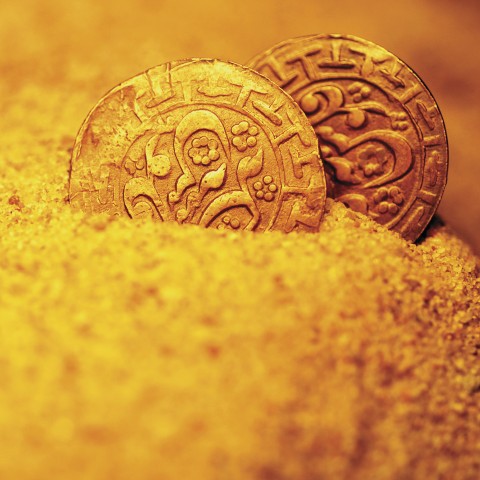
Why Are There So Many English Words in Bulgarian?
Globalization is the main reason there are so many English words in the Bulgarian language. Recent technologies such as the World Wide Web, social media, and global trading mediums facilitate the global spread of English words. Virtual communication encourages the use of many English words, which have become widely used in both spoken and written Bulgarian.
As a result, many English words are used in the Bulgarian political, social, cultural, and economic spheres and people use them to describe services, products, and business information. There are also many professional terms in Bulgarian that originate from English vocabulary.

The Use of Foreign Words in Bulgarian
Like most other languages, Bulgarian adopts many foreign words for regular use in the language. When a foreign word is used often enough for a long enough period of time, it’s common for Bulgarians to perceive that word as being native to Bulgarian. For example, there are many Turkish words that are so widely used by Bulgarians that many of them don’t even realize they’re foreign.
Such Turkish words include:
- чешма (cheshma) – faucet
- памук (pamuk) – cotton
- зехтин (zehtin) – olive oil
There are so many Turkish words in Bulgarian because Bulgarians were under the Turkish yoke for five centuries. The Russian, French, and German languages later influenced Bulgarian as well.
Here are some examples of Russian words in the Bulgarian language:
- дружба (druzhba) – friendship
- хазяин (hazyain) – house owner
- болшинство (bolshinstvo) – majority
- съблюдавам (sablyudavam) – observe
- милосърдие (milosardie) – mercy
Here are examples of French words in the Bulgarian language. You’ll notice that these words are also used in English.
- трофей (trofey) – trophy
- меню (menyu) – menu
- майонеза (mayoneza) – mayonnaise
- бюро (byuro) – buro
- булевард (bulevard) – boulevard
Here are examples of German words in the Bulgarian language:
- вафла (vafla) – waffle
- курорт (kurort) – resort
- табела (tabela) – signboard
- ауспух (auspuh) – muffler
Because of the common history between Bulgaria and Greece, there are many Greek words in the Bulgarian language, as well. Here are some of them:
- евтин (eftin) – cheap
- пирон (piron) – nail
- ангел (angel) – angel
- килер (kiler) – closet
- стомах (stomah) – stomach
- тиган (tigan) – frying pan
- тетрадка (tetradka) – notebook
After communism fell in 1990, Bulgaria opened up to the Western world—its food, music, culture, markets, and language. Naturally, more and more English words entered the Bulgarian language and even began to replace some Bulgarian words. Here are some examples:
| Original Bulgarian Word/Phrase | English Replacement | Meaning |
| търсене в глобалната мрежа (tarsene v globalnata mrezha) | сърфиране в нета (sarfirane v neta) | surfing the Net |
| разговори (razgovori) | чатове (chatove) | chats |
| сприятеляване (spriyatelyavane) | aдване на френдове (advane na frendove) | to add friends |
| опит (оpit) | eкспириънс (ekspirians) | experience |
| публикувам информация във Фейсбук (publikuvam informatsiya vav Feysbuk) | поствам (postvam) | to post |
| изключвам от приятелите си (izklyuchvam ot priyatelite si) | ънфрендвам (аnfrendvam) | to unfriend |
English Words Used in Bulgarian Business Culture
Each year, thousands of new foreign words enter the Bulgarian language. Some of them may not be well-accepted by people and will be forgotten over time. Others are widely used and end up becoming a part of the daily or business language. Over time, some of them can even take the place of existing Bulgarian words.
Below is a list of twenty Bulgarian words replaced by English words in the business world. People who know English will find this information very useful when speaking with their Bulgarian business partners.

| Original Bulgarian Word/Phrase | English Replacement | Meaning |
| започвам (zapochvam) | стартирам (startiram) | I start |
| в брой (v broy) | в кеш (v kesh) | in cash |
| връзка (vrazka) | контакт (kontakt) | contact |
| положение (polozhenie) | ситуация (situatsiya) | situation |
| място (myasto) | локация (lokatsiya) | location |
| среща с журналисти (sreshta s zhurnalisti) | брифинг (brifing) | briefing |
| финансова проверка (finansova proverka) | одит (odit) | audit |
| наблюдение (nablyudenie) | мониторинг (monitoring) | monitoring |
| майстор-готвач (maystor-gotvach) | мастър-шеф (mastar-shef) | chef |
| курс (kurs) | мастър-клас (mastar-klas) | master class |
| изложба (izlozhba) | експозиция (ekspozitsiya) | exposition |
| събитие (sabitie) | евент (event) | event |
| представяне (predstavyane) | презентация (prezentatsiya) | presentation |
| осъществявам (osashtestvyavam) | реализирам (realiziram) | I realize / I achieve |
| представление (predstavlenie) | шоу (shou) | show |
| съдържание (sadarzhanie) | контент (kontent) | content |
| желание (zhelaniye) | мотивация (motivatsiya) | motivation |
- → If you would like to learn useful Bulgarian phrases to use in your conversations with Bulgarian business partners, you can take a look at our list of Essential Phrases for Doing Business Successfully.
- → Also see our free vocabulary lists on Jobs / Work and The Workplace for some practical supplementary vocab!
English Words Used in the Bulgarian IT Sector
The Bulgarian IT sector is probably the field that’s most influenced by English terminology. This is understandable, since computer science borrows heavily from the English language. As a result, foreigners will be able to quickly recognize these famous English words in Bulgarian. Take a look at these examples, keeping in mind that the Bulgarian versions are pronounced almost identically to the original English words.
| English Word | Bulgarian Equivalent |
| organizer | органайзер (organayzer) |
| timer | таймер (taymer) |
| scanner | скенер (skener) |
| printer | принтер (printer) |
| router | рутер (ruter) |
| monitor | монитор (monitor) |
| sensitive | сензитивен (senzitiven) |
| canceling | канселиране (kanselirane) |
| to click | кликам (clikam) |
| developer | дивелъпър (diveloper) |
| digital | дигитален (digitalen) |
| header | хедър (heder) |
| font | фонт (font) |
| user | юзър (user) |
- → Here is another useful list of Bulgarian Words Related to Computers.

English Words Used in Professional Terminology
There are many newly coined words and phrases related to professional terminology that originate from the English language. Here is a list of some of the most popular English words in Bulgarian that may sound very familiar to you.

| English Word | Bulgarian Equivalent |
| voucher | ваучер (vaucher) |
| action | екшън (ekshan) |
| integration | интеграция (integratsiya) |
| globalization | глобализация (globalizatsiya) |
| anti-globalism | антиглобализъм (antiglobalizam) |
| Euroscepticism | евроскептицизъм (evroskeptitsizam) |
| dollarization | доларизация (dolarizatsiya) |
| sponsor | спонсор (sponsor) |
| image | имидж (imidzh) |
| logo | лого (logo) |
| training | тренинг (trening) |
| trend | тренд (trend) |
| media | медия (mediya) |
| weekend | уикенд (uikend) |
- → Want to learn more vocabulary related to the professional world? You can get acquainted with 20 Common Bulgarian Words for Occupations on our website.
World-Famous Celebrity Names Translated to Bulgarian
Have you ever wondered how Bulgarians pronounce the names of world-famous celebrities? Then you’re going to enjoy this section!
Celebrity names are most often transliterated into Bulgarian instead of receiving a brand-new translation. We’ll provide you with some examples of how this works, using the names of several popular celebrities.
- ★ Before proceeding, we would like to give you a task: Cover the right side of the screen with a sheet of paper in order to hide the English translation of the names, and read them in Bulgarian on the left side. Try to guess who they are and then check the answers in the right column. Good luck!

| Bulgarian Names of Celebrities | English Names of Celebrities |
| Бийонсе | Beyoncé |
| Дуейн Джонсън | Dwayne Johnson |
| Тейлър Суифт | Taylor Swift |
| Дженифър Анистън | Jennifer Aniston |
| Анджелина Джоли | Angelina Jolie |
| Том Ханкс | Tom Hanks |
| Брад Пит | Brad Pitt |
| Риана | Rihanna |
| Уил Смит | Will Smith |
| Леонардо ди Каприо | Leonardo DiCaprio |
| Ким Кардашян | Kim Kardashian |
| Джони Деп | Johnny Depp |
| Джъстин Бийбър | Justin Bieber |
| Бен Афлек | Ben Affleck |
| Мадона | Madonna |
| Джулия Робъртс | Julia Roberts |
How BulgarianPod101 Can Help You Learn More Bulgarian
BulgarianPod101 was created with one goal in mind: to help people learn Bulgarian more easily. We know how tough a foreign language can seem, but we believe that the process of learning can be fun and simple. In fact, that’s why we put together this overview of English words in the Bulgarian language—this way you can start adding words you already know to your Bulgarian vocabulary arsenal. And as you can see, they are not few!
If you believe that at this stage of your learning, you need a professional native Bulgarian teacher to give you individualized assignments and guidance, then you might be interested in our MyTeacher service for Premium PLUS members.
We hope that you were able to successfully complete the task about celebrity names. If not, don’t get discouraged—just head over to our Alphabet lesson where you’ll find our Free Guide to Beginner Bulgarian.
Before you go, please share with us whether you found this article useful and how you did guessing the celebrity names. We’re always happy to read your comments and help out the best we can!

A Detailed Overview of Bulgarian Culture and Traditions

Just like every other country in the world, Bulgaria has a very specific culture influenced by its past and origins. The history of Bulgaria is fascinating and sheds some light on the various aspects of Bulgarian culture and customs, from the way Bulgarians live to their mindset and common character traits. Learners of the Bulgarian language can greatly benefit from knowing more about this country, which some consider to be “The Cradle of Civilization.”
BulgarianPod101 invites you to join us on this intriguing adventure through the culture of Bulgaria. Who knows, maybe this special overview of Bulgarian culture will prompt you to come and experience everything for yourself!
 Table of Contents
Table of Contents
- How Bulgarian History Has Influenced Our Culture
- Philosophies and Religions
- Family & Work
- Art
- The Hospitality of Bulgarian People
- Traditional Bulgarian Holidays
- Cultural Taboos
- How BulgarianPod101 Can Help You Learn Bulgarian
1. How Bulgarian History Has Influenced Our Culture
Bulgaria boasts a long history that has influenced its folklore and ancient rituals, some of which are still preserved to this day. The nation’s religious background has also shaped the character, traditions, and cuisine of the Bulgarian people. Let’s explore the relationship between Bulgarian history and culture in more detail.
What makes Bulgaria special?
Bulgaria is a country located on the Black Sea’s western shore. This land is full of riches and has a very diverse landscape. Here you will find fruitful plains, valleys, and lowlands where lush rivers flow, as well as multiple seaside summer resorts, rural villages, ancient settlements, and high mountains and mountain ranges. The territory of Bulgaria includes all types of relief, and the diversity of its natural resources attracts millions of tourists every year.
Bulgaria is definitely a place worth visiting at least once in a lifetime. Just imagine: spending a nice summer vacation at the beach or by a swimming pool…taking advantage of healing thermal springs and mud baths…exploring artifacts left by the ancient Thracians, Romans, Greeks, and Proto-Bulgarians…or even enjoying mountain resorts that are open to tourists year-round. Yes, please!
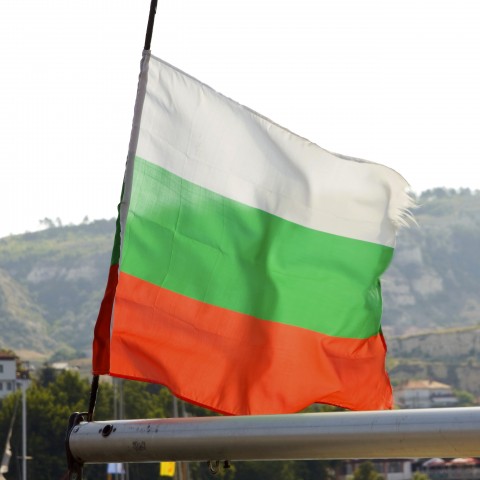
History of Bulgaria
According to ancient historical reports, Bulgarian territory was once inhabited by different tribes who built settlements here as early as 500 BC. They were united by the Odrysian King Teres and later conquered by Alexander the Great. Then, in 46 AD, the Roman Empire took possession of the land, followed by the Byzantine Empire in the fifth century.
The First Bulgarian Empire began in 681 when a treaty with Byzantium was concluded. The first Bulgarian capital was the city of Pliska, and the country was ruled by Khans, who expanded the nation’s territory and strength.
A noble moment in early Bulgarian history was the Bulgarian people’s baptism in the Christian faith. Prior to this, Bulgarians believed in various pagan gods. The Christianization of Bulgaria began in 864, thanks to Khan Boris (who then received the title Knyaz). During the reign of his son Simeon the Great, Bulgaria entered its Golden Age and expanded its territory to reach three seas: the Aegean Sea, the Adriatic Sea, and the Black Sea.
The First Bulgarian Empire ended in 1018 when the Byzantine conquered the entire territory. However, in 1185 the Asen dynasty built the Second Bulgarian Empire after a successful revolt. Unfortunately, this empire also fell, being conquered by the Ottoman Empire in the fourteenth century.
The Ottoman Yoke continued for five centuries, during which there were many unsuccessful revolts. The most popular of them was the 1876 April Uprising, which was severely suppressed by the Ottomans; this resulted in thousands of victims from the Bulgarian population. One year later, in 1877, Russia declared a war against the Ottomans and helped Bulgarians liberate their land. This is how the Third Bulgarian State was established in 1878.
In 1946, Bulgaria became a communist republic. The communist regime remained until late 1989 and was followed by a democracy. This was when Bulgaria opened to the entire world. In the thirty years that followed, Bulgarian culture, customs, art, and heritage were promoted and gained worldwide fame. In 2004, Bulgaria joined NATO; in 2007, it became a European Union member.
- → To gain even more insight into Bulgarian history and culture, you can head over to our lesson on Historical Figures!
Influence on Bulgarian culture
Bulgarian culture and traditions have been greatly influenced by those of the Thracians, Slavs, and Bulgars. After Bulgaria’s Christianization, the Eastern Orthodox Church also began to shape the culture, though numerous ancient customs were preserved and are now recognized as an Intangible Cultural Heritage by UNESCO. Examples include the Thracian barefoot ember dancing known as Nestinarstvo, the dance of the Kukeri, Bulgarian Folklore, and Martenitsa.
The Bulgarian folkloric tradition is so strong that it has influenced many fields, including art, music, literature, celebrations, and even the daily lives of Bulgarians in certain territories of the country.
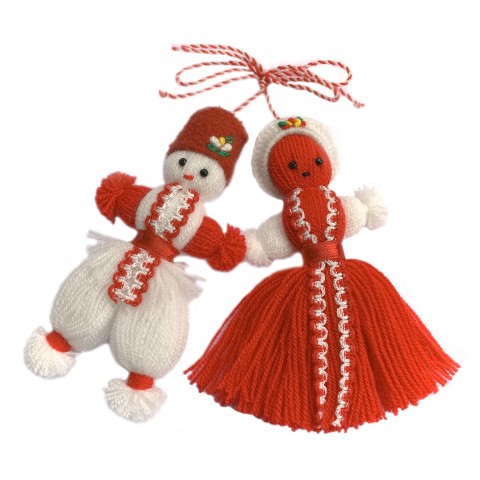
- → Are you interested in learning more about the History of the Bulgarian Language? Then make sure you check out our relevant lesson to gain more insight on the topic.
2. Philosophies and Religions
Religion plays an important role in society, which makes it a key component in understanding Bulgarian culture. In this section, we’ll look at the different ethnic groups in Bulgaria, the prominent religions of the past, and what religion looks like in modern Bulgaria.
Ethnic groups in Bulgaria
Obviously, the majority of Bulgaria’s population consists of Bulgarians, who make up 76.9% of the total population. Turkish people make up another 8% and Romani 4.4%. These are the main ethnic groups in the country. However, you can find many other ethnic groups in different parts of the country, which amount in total to more than 10% of the population. These include Greeks, Russians, Armenians, Ukrainians, Vlachs, etc.
It is interesting to note that in recent years, morе and more foreigners from Western Europe are settling in the rural areas of Bulgaria. They prefer to live in this country, or to spend long summer vacations here.
Before moving on, let’s look at the population’s age demographics:
| Age | % |
| <14 | 14.6% |
| 15 to 24 | 9.43% |
| 25 to 40 | 43.12% |
| 55 to 64 | 13.3% |
| 65+ | 19.54% |
Religions in the past
As we mentioned earlier, ancient Bulgars practiced paganism. They believed in the pagan god Tangra, which is why their religion was called Tengrism. The Slavs and the Thracians who also inhabited this land worshipped different pagan gods, which created a sort of separation between the groups. This separation made them unable to withstand attacks from their surrounding enemies in the face of Byzantium.
One of the main reasons Khan Boris I decided to introduce Christianity into the state was to unite these different tribes into one strong nation. And he succeeded. The unity created by this new religion caused the Byzantine Empire and other great nations to recognize Bulgaria as a kingdom.

Religions in Bulgaria today
The main religion in Bulgaria is still Eastern Orthodox Christianity, to which about 60% of the population adheres. Some of the minorities in the country, such as Russians, Romanians, Greeks, Ukrainians, and Armenians also practice this religion. The Bulgarian Calendar is rich in Orthodox holidays, some of which we’ll discuss later in this lesson.
Islam is Bulgaria’s second largest religion with about 8% of the total population identifying as Muslim. This portion of the population mainly consists of Turkish people, Pomaks, and Roma. There are many villages and cities in Bulgaria with mosques.
Only 0.8% of the Bulgarian population identifies as Catholic; 0.9% (and the number is growing) are Protestants. It is interesting to note that after communism ended, the membership of various Protestant churches in Bulgaria tripled in a matter of ten years. This was due to the foreign missionaries who converted many atheists and Muslims to Christianity. Today, about 10% of Bulgarians are declared atheists or agnostics.
3. Family & Work
In any country, work and family life play significant roles in society. Let’s explore the different facets of work and family in Bulgaria!
Family Values
The most popular family structure in Bulgaria is the nuclear family. Couples normally have one or two children, and it’s rare to see a Bulgarian family with more than three children (with the exception of Roma families).
During the years of communism, family was among the most important values in Bulgaria. In those times, 95% of women believed that a full and satisfying life could be obtained only by having a family. Before democracy was declared in 1989, there were almost no divorces in the country; the few that did happen were looked upon with resentment by society. Things have changed since the start of our democracy and the number of divorces has reached about 10,000 per year.
Western culture has significantly influenced Bulgarian society. According to some sociologists, this has led to the degradation of family values and has made cohabitation a popular choice. In 2011, about 82% of young people aged between 20 and 30 preferred to stay unmarried.
Another change in society is reflected in the relationship between younger and older generations. In the past, elders were widely respected and their children took care of them. Nowadays, the intense speed of our daily routines, as well as the deviation from our traditional family values, have made more and more people rely on hospices and homes to take care of their elderly parents.
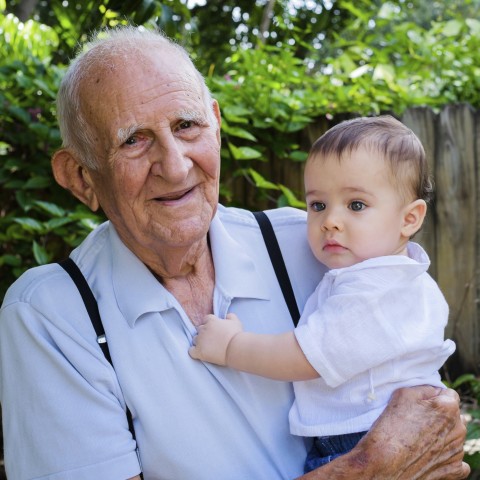
Working in Bulgaria
There has been a recent increase in the number of working people over 45 years of age in Bulgaria, which is a logical consequence of the nation’s aging demographics. Another interesting fact about Bulgarian work culture is that more and more Bulgarians who emigrated to work in foreign countries are returning to Bulgaria. While Bulgaria still has a low salary standard compared to other European countries, the salary is gradually increasing in some sectors, such as IT and outsourcing. This is a motivating factor for job seekers.
The bigger the city, the more jobs there are available. This means that it is more difficult for people who live in the countryside to find a job. Usually, they cultivate the land and raise livestock to produce and sell food.
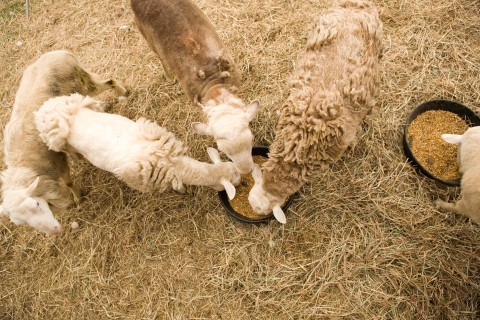
Bulgaria as an agricultural country
Agriculture is well-developed in Bulgaria and the country is an exporter of many kinds of agricultural products. These include different kinds of cereals, technical crops, vegetables, fruits, viticulture, herbs, honey, and even edible mushrooms. The most common cereals include wheat, barley, oats, and rye. Other popular crops include beans, rice, corn, lentils, and alfalfa.
Bulgaria is one of the biggest producers of rose oil and lavender oil in the world. The country is also famous for its tasty and quality dessert and wine grapes. The country’s climate is favorable for an abundance of vegetables and fruits, such as:
- Tomatoes
- Cucumbers
- Peppers
- Squash
- Zucchini
- Cabbage
- Eggplant
- Carrots
- Apples
- Apricots
- Peaches
- Pears
- Plums
- Cherries
- Sour cherries
- Watermelons
- Melons
- All kinds of berries
As for livestock, Bulgarians grow sheep, goats, cattle, buffalo, turkeys, chickens, ducks, geese, pigs, horses, and so on. As a consequence, over 250 thousand tons of milk, 211 thousand tons of meat, and 1.2 million eggs are produced yearly.
4. Art
Bulgarians have contributed to the world’s art development through their great athletes, musicians, opera singers, writers, actors, artists, sculptors, and other personalities who have dedicated their lives to art. Let’s look at three areas of Bulgarian art for which the country is especially famous.
Traditional Bulgarian music
Bulgarian folk music is unique not only because of the special folk instruments used to perform it, but also because of its irregular rhythms, complex harmonies, and the difficulty of the performance. In previous centuries, Bulgarians lived mainly in rural areas, where this was the most popular type of music they created and listened to. Many of the songs and melodies have been passed down from generation to generation until today.
Among the most common musical instruments used in Bulgarian folk music are:
- the gaida (a goatling- or lamb-skin bagpipe)
- the kaval (an end-blown flute)
- the gadulka (a bowed stringed instrument)
- the tupan (а large double-headed drum)
- the tambura (similar to the mandolin)
There are some Bulgarian villages and small towns that have special schools or clubs to teach children and young people how to play these instruments.
One of the most famous Bulgarian folk singers is Valya Balkanska, who was awarded with the highest Bulgarian award “Orden Stara Planina” in 2002. The song Izlel ye Delyo Haydutin, which she performed in 1977, was selected as part of the Golden Record located aboard the two identical spacecraft Voyager 1 and Voyager 2. It is a part of a sound message that the Earth is sending to potential civilizations in the universe. You can hear this popular song here.
Popular sports
Many Bulgarians have gained worldwide fame thanks to their incredible achievements in the world of sports.
Let’s start with Hristo Stoichkov, who is the best-known Bulgarian soccer player of all time. His achievements were so great that many foreigners started to associate Bulgaria with his name. Other popular soccer players of Bulgaria are Dimitar Berbatov and the deceased Georgi Asparuhov, known as Gundi.

Among the most popular Bulgarian boxers are Kubrat Pulev and the late Dan Kolov. Kolov was the first European freestyle wrestling champion from Bulgaria and a mixed martial artist who lived most of his life in the USA.
Another famous name is that of the Bulgarian grandmaster Veselin Topalov, who won the World Chess Championship in 2005 and 2006. Fans of tennis will also be familiar with the name Grigor Dimitrov. Finally, we should mention Stefka Kostadinova, whose World Record of a 209-centimeter high jump in 1987 still remains unbeaten.
Bulgarian literature
There are many notable Bulgarian writers. We’ll start by mentioning Paisiy Hilendarski, who wrote Istoriya Slavyanobolgarskaya in 1762, which was the first written report of Bulgarian history up to that time. Some of the more popular writers include Ivan Vazov with his famous novel Under The Yoke, Emiliyan Stanev with The Peach Thief, and Nikolay Haytov, whose book Wild Stories is included in the Historical Collection of UNESCO.
5. The Hospitality of Bulgarian People
Bulgaria, among other Balkan nations, is famous for its hospitality. Sometimes, Bulgarians еven invite strangers and random visitors for lunch or dinner. However, this kind of hospitality is seen less in the cities and more in rural villages like Ribaritsa (the longest Bulgarian village in Stara Planina), Delchevo (a beautiful village in Pirin, where instead of “Hello,” old people greet with “God bless you”), Leshten (with its nineteenth-century architectural style), Kovachevitsa, and Ognyanovo (where a popular thermal spring is located).

People who offer you hospitality might be offended if you don’t accept their invitation, so it is polite to accept it. Once you enter their home, you are considered a friend. Bulgarians can be very curious about how foreigners live, so be prepared to answer their multiple questions about your country. You can also expect them to reciprocate: most Bulgarians are very garrulous, so you’ll be able to learn many things about Bulgaria in your conversation with them.
Bulgarians who invite foreigners are usually happy to prepare traditional Bulgarian food for them to sample. Common dishes include tarator, banitsa, guvech, and shkembe chorba. This would be a great chance to try authentic Bulgarian dishes cooked by a skilled homemaker who would probably be happy to share the recipes with you—and even give you tips on how to cook them properly.
- → To learn more about the most popular Bulgarian foods and beverages, you can view our lesson on the Top 5 Bulgarian Foods and our vocabulary list titled What’s Your Favorite Bulgarian Food?
6. Traditional Bulgarian Holidays
Knowing about the most popular Bulgarian holidays will allow you to plan your visit for a period when the most important cultural events in Bulgaria are happening. Taking part in the festive atmosphere will help you experience the culture, personality, and history of this country better. However, be aware that some restaurants and shops, and most public institutions, are closed during the official holidays.
Liberation Day (March 3)
This day celebrates the Liberation of Bulgaria in 1878 from the Ottoman Rule. This took place after the Russian Empire won the last Russian-Turkish War. From that day on, Bulgaria was a free country again.
St. George’s Day (May 6)
May 6 is associated with the Christian martyr St. George, who killed the dragon. In Bulgaria, it is also celebrated as the day of the Bulgarian Army and bravery. To celebrate, Bulgarians usually prepare a whole lamb as a traditional meal for the entire family. Moreover, the name George (Георги) is very common in Bulgaria and those with this name celebrate their name day on May 6 as well.
Day of the Bulgarian Alphabet (May 24)
The alphabet created by the Slavonic brothers Cyril and Methodius is called Glagolitsa. It was later simplified by their students, who named the new alphabet after Cyril: Cyrillic alphabet. On May 24, all students and teachers in Bulgaria have a special celebration.
Easter
This is among the most important religious holidays in Bulgaria, celebrating the Resurrection of Christ. If you are in the country during this period, your Bulgarian friends will probably give you a painted hard-boiled egg and a special sweet Easter bread called kozunak.
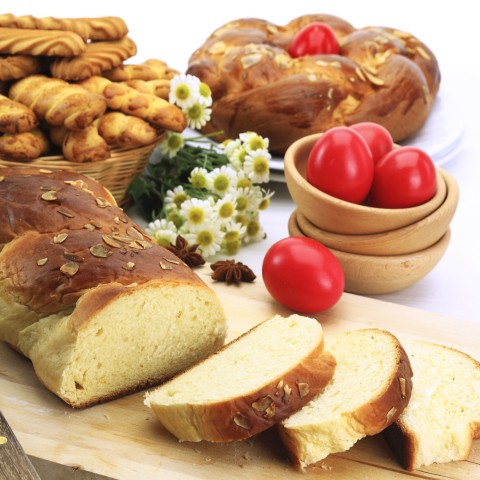
- → In this article, you can learn more about another Bulgarian holiday related to Easter: Tsvetnitsa.
Christmas Eve (December 24)
This is another religious holiday in Bulgaria, celebrating the birth of Christ on Earth. According to Bulgarian traditions for this holiday, we only eat lean dishes on Christmas Eve, and there should be a specific number of dishes: 7, 9, or 11/12 different kinds. A festive bread or banitsa should be made with a coin hidden inside; whoever finds the coin in his piece is considered lucky and will have prosperity and health in the next year.
7. Cultural Taboos
Bulgarians accept people of different countries, social levels, professions, etc. They are generally open to foreigners, which is why the country is home to so many minorities from many different countries. But there are still a couple of things to consider in order to be polite while visiting someone’s house.
When you’re invited to be a guest in someone’s house, it is considered impolite to enter without taking off your shoes. Even Bulgarians take off their shoes when entering the home, even if the housewife insists that they don’t have to do that. This is a sign of respect toward the housewife’s work. She will probably offer you slippers, but some Bulgarians prefer to take their own slippers from home when visiting friends, so you could opt to do the same. It is also impolite to refuse any food or drink offered to you by the host.
8. How BulgarianPod101 Can Help You Learn Bulgarian
There are certainly many fascinating aspects of Bulgarian culture, and we hope that our brief overview has inspired you to continue learning. There is so much more for you to discover, and the more you know Bulgaria, the more effective and immersive your language studies will be.
If you would like to continue studying the Bulgarian language with a personal teacher, you can choose one from MyTeacher by creating a Premium PLUS account. Native Bulgarian linguists will not only lead you through the grammar points, but will also share with you more interesting facts about Bulgarian history and culture.
Before you go, let us know in the comments if there’s anything we missed in this lesson. Is there anything you still want to know about Bulgarian culture? We’ll get back to you as soon as possible!










